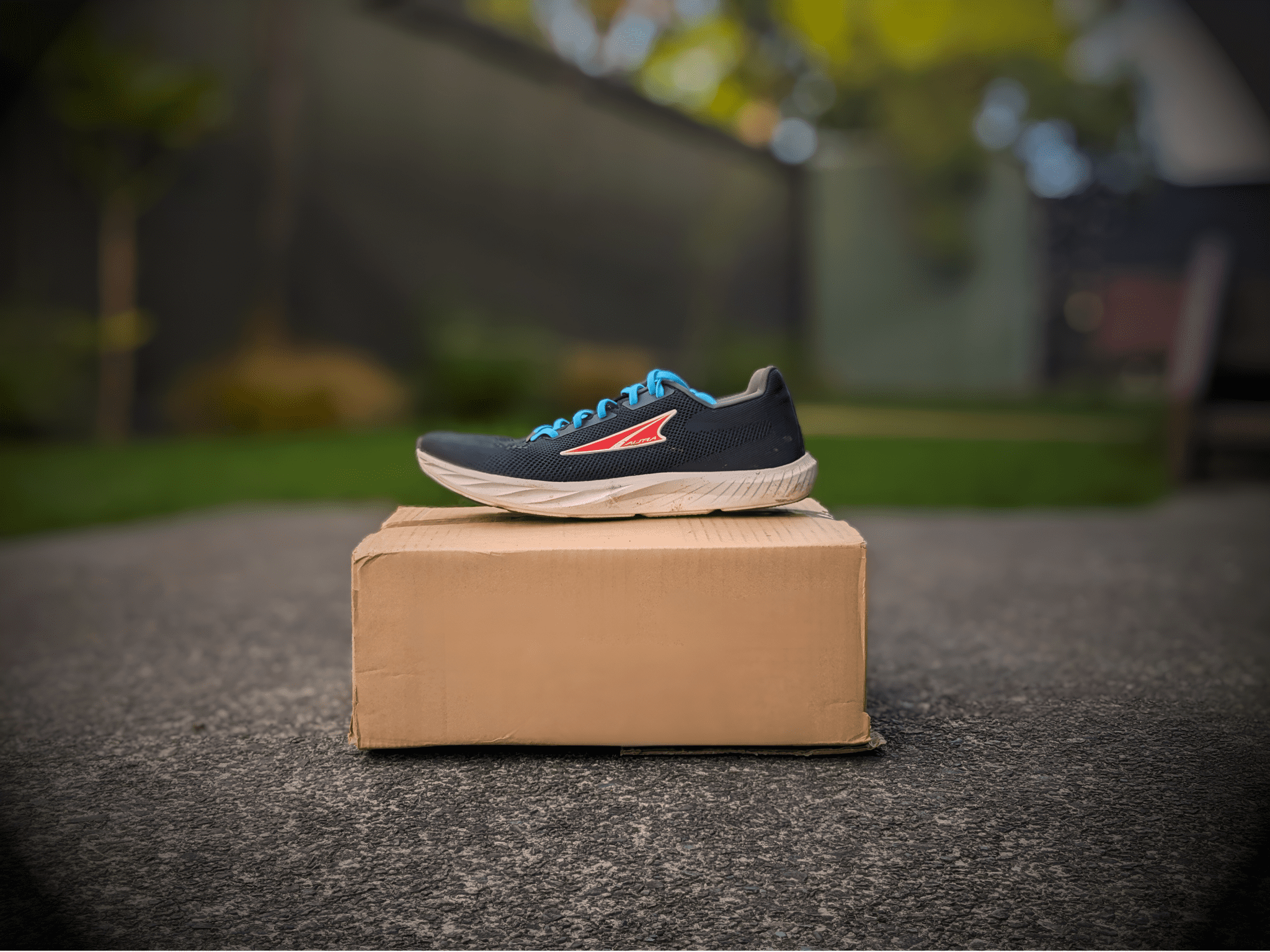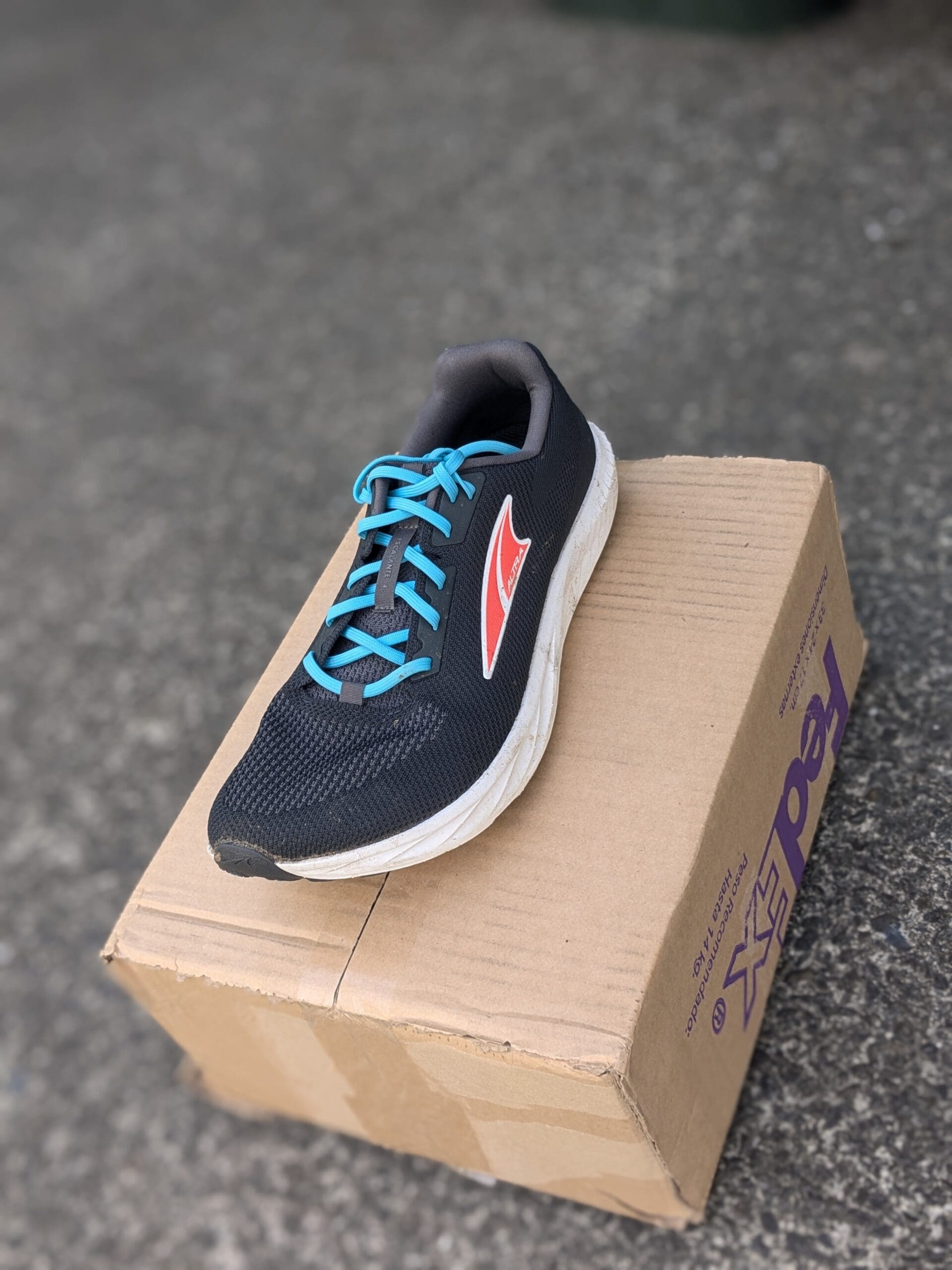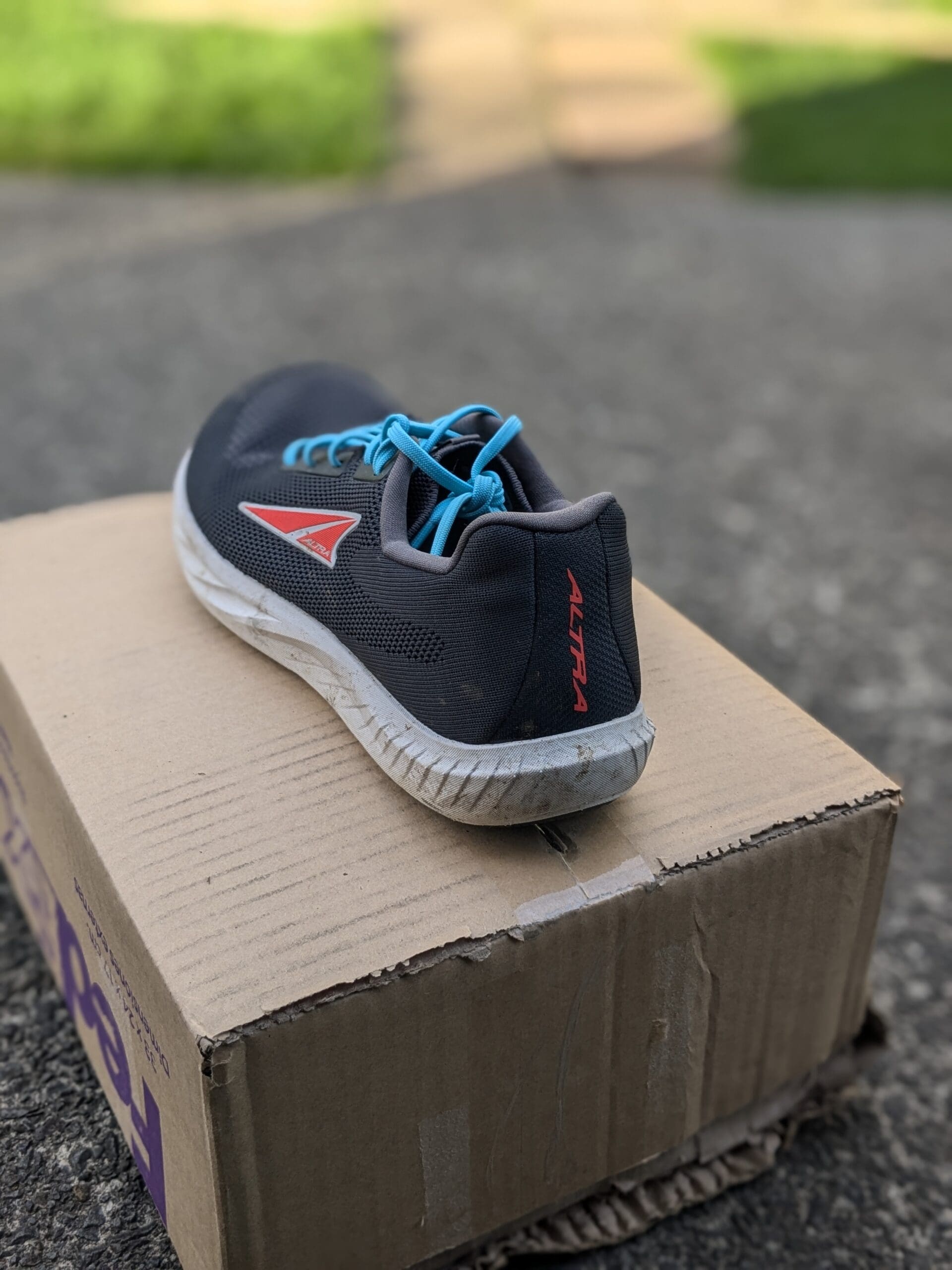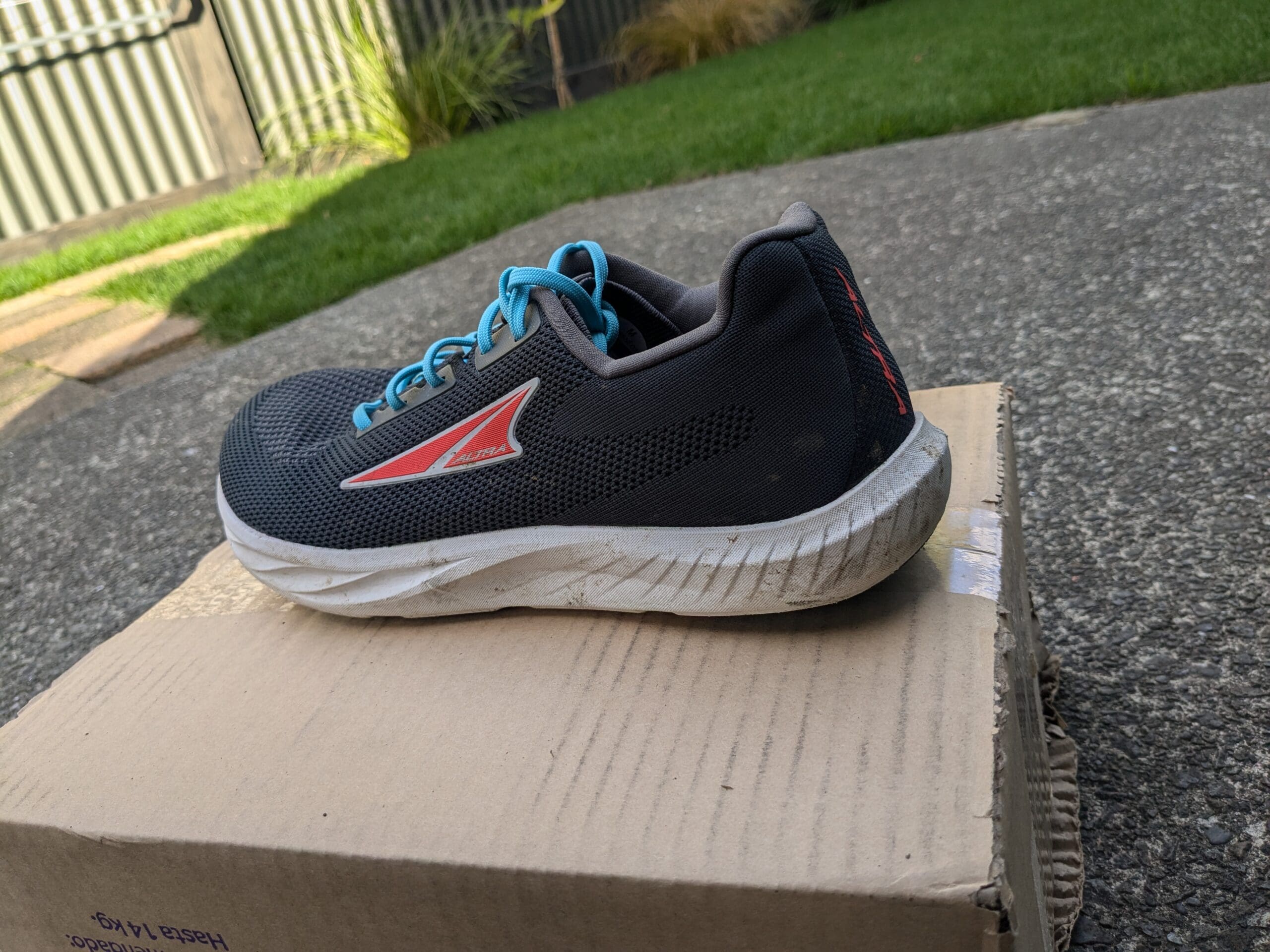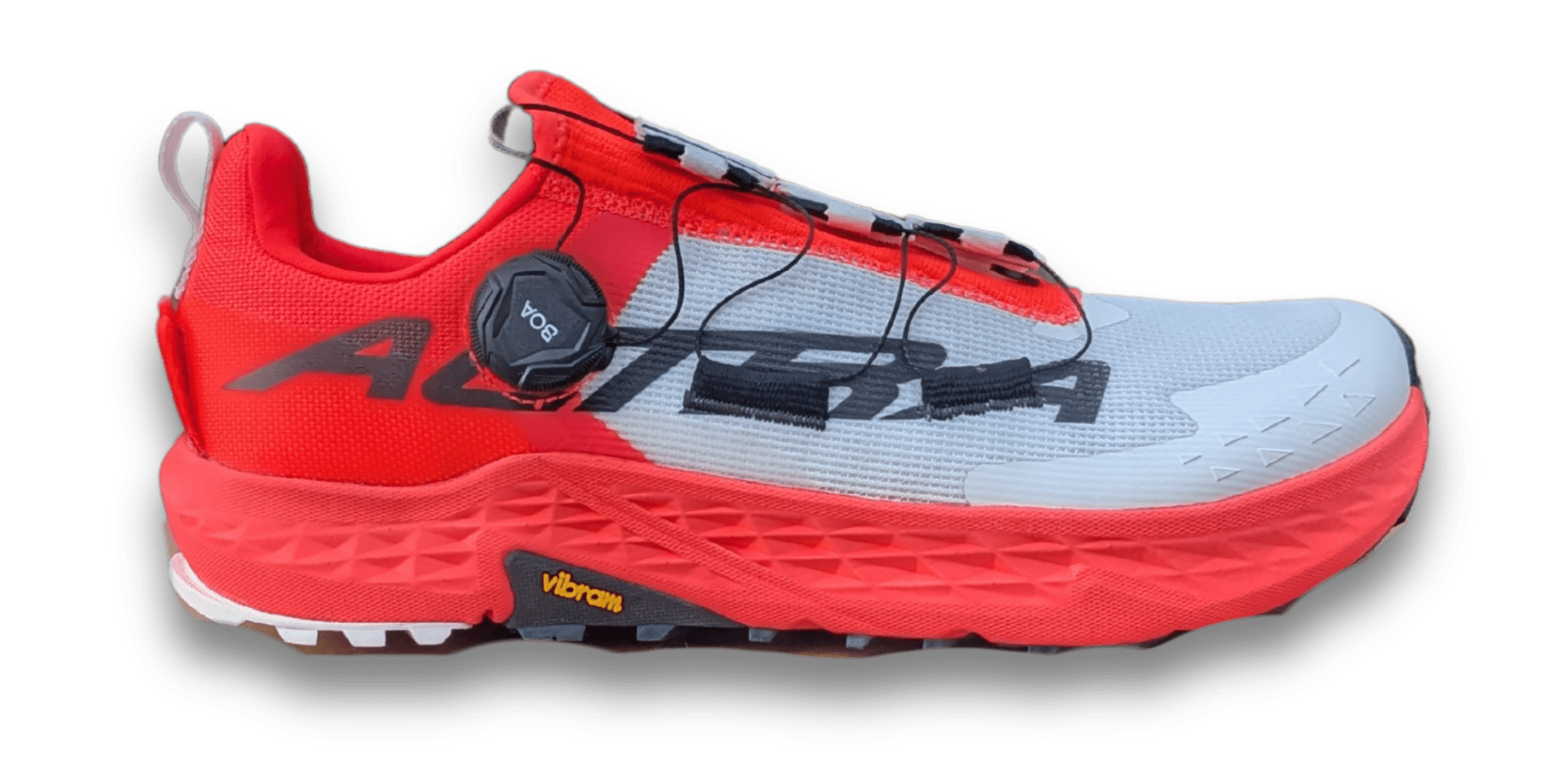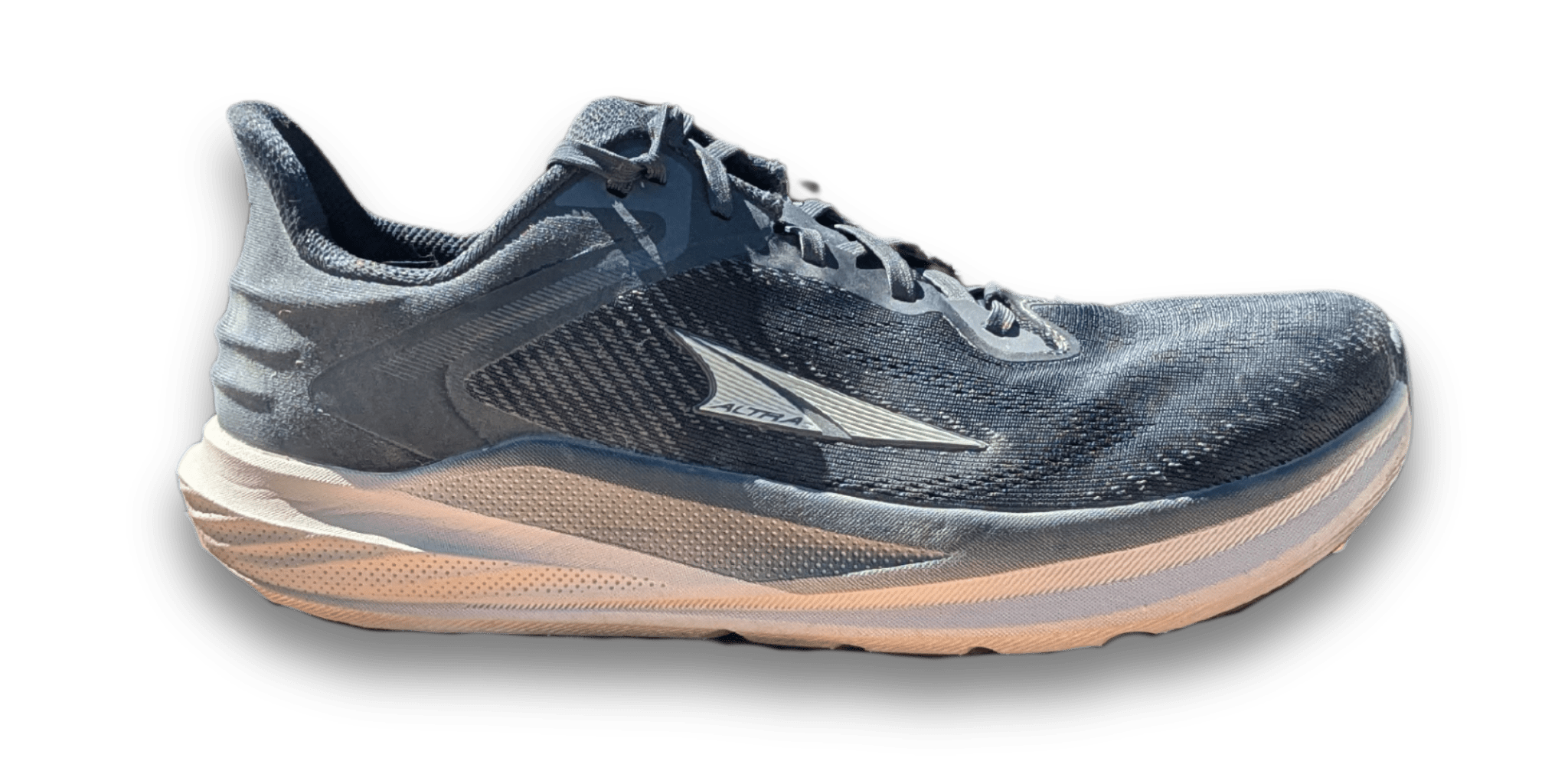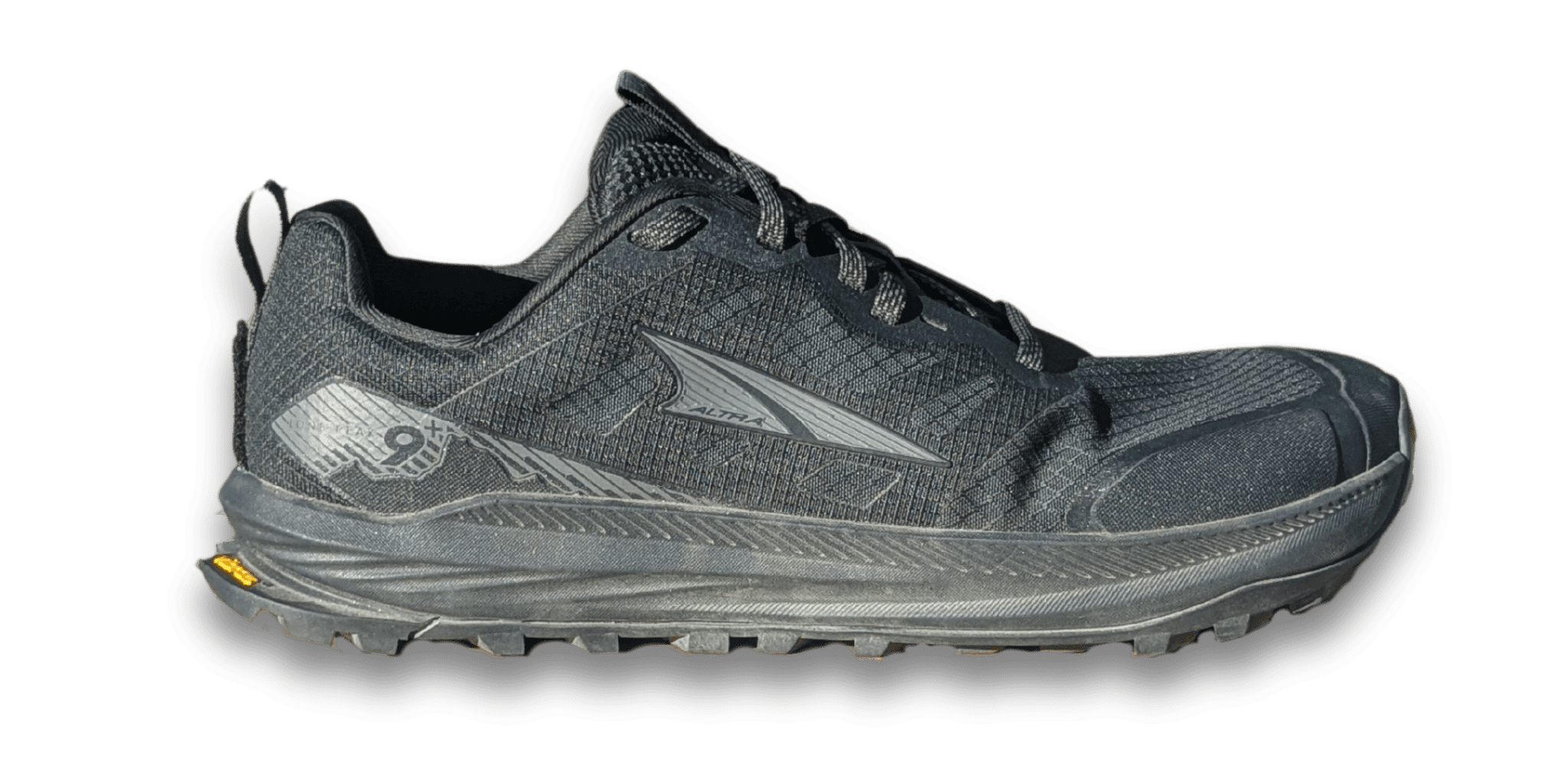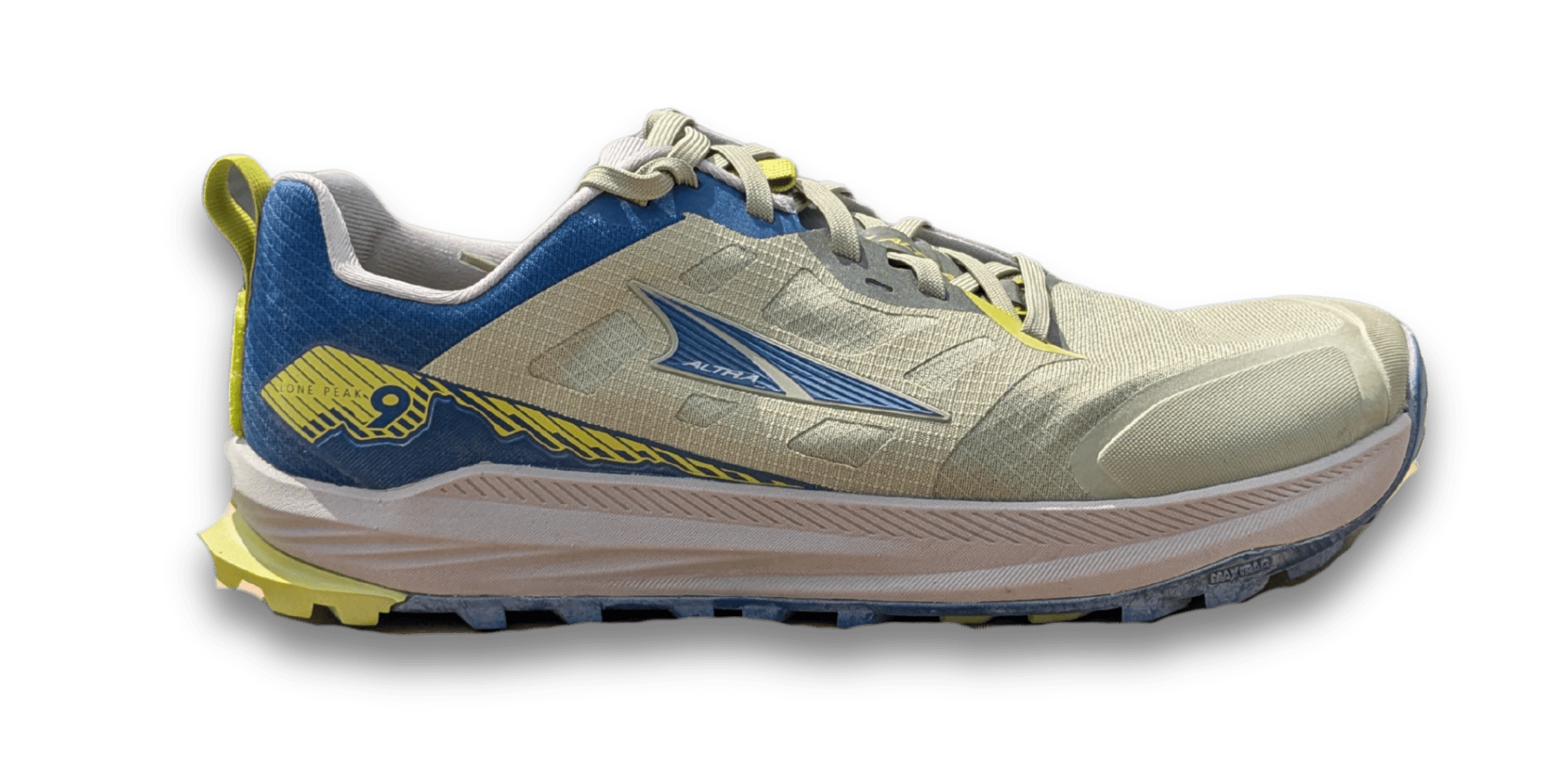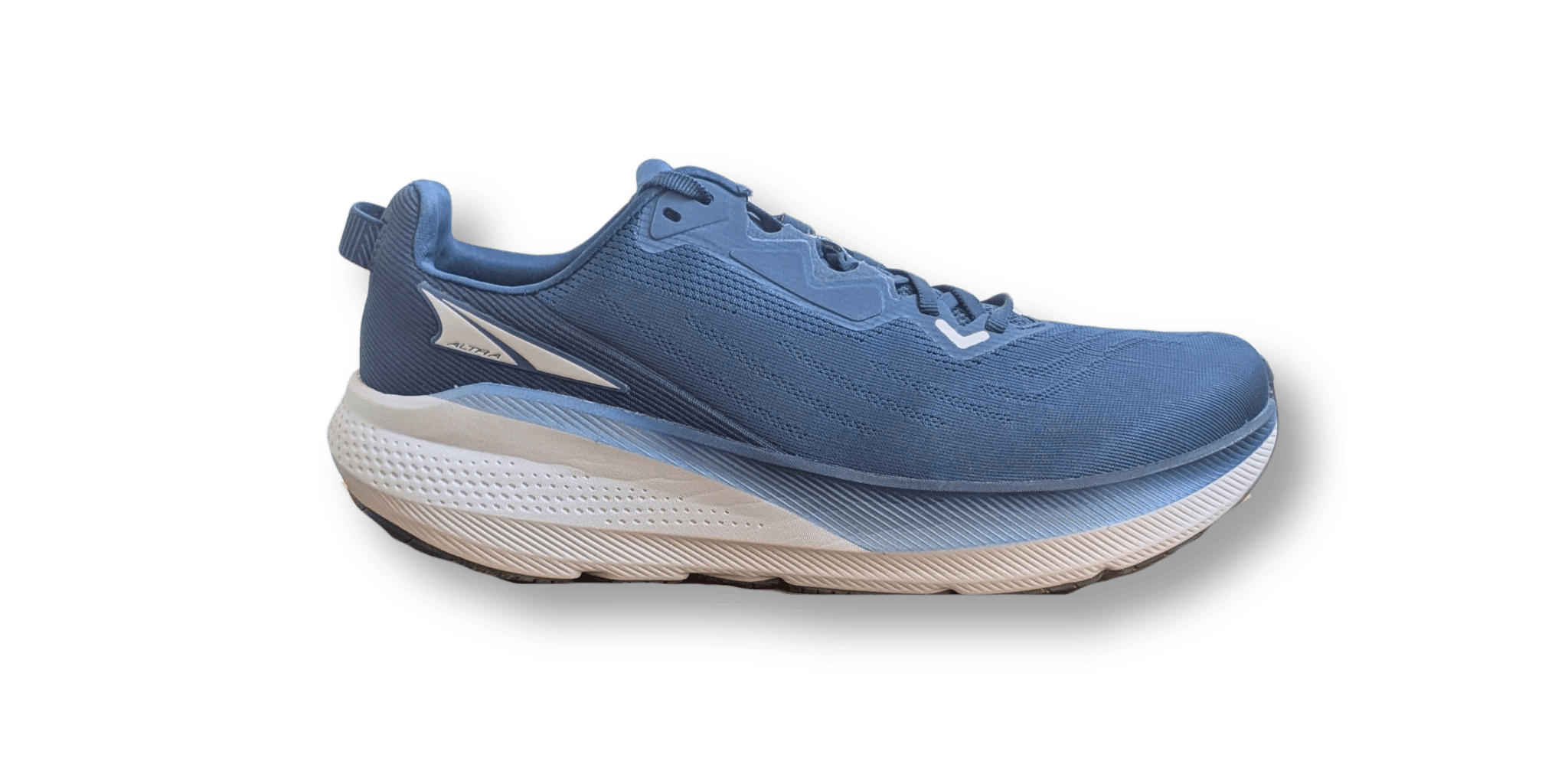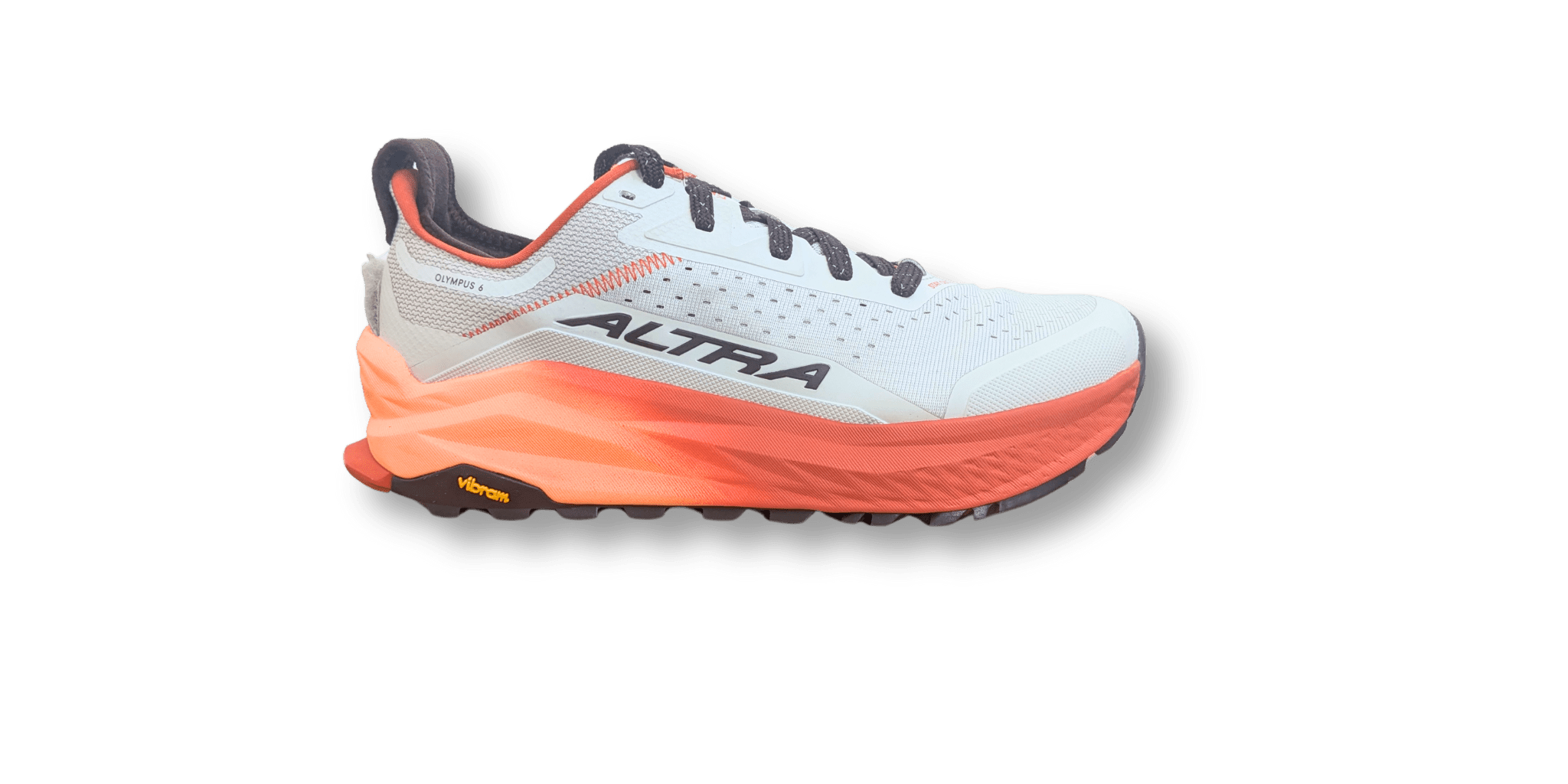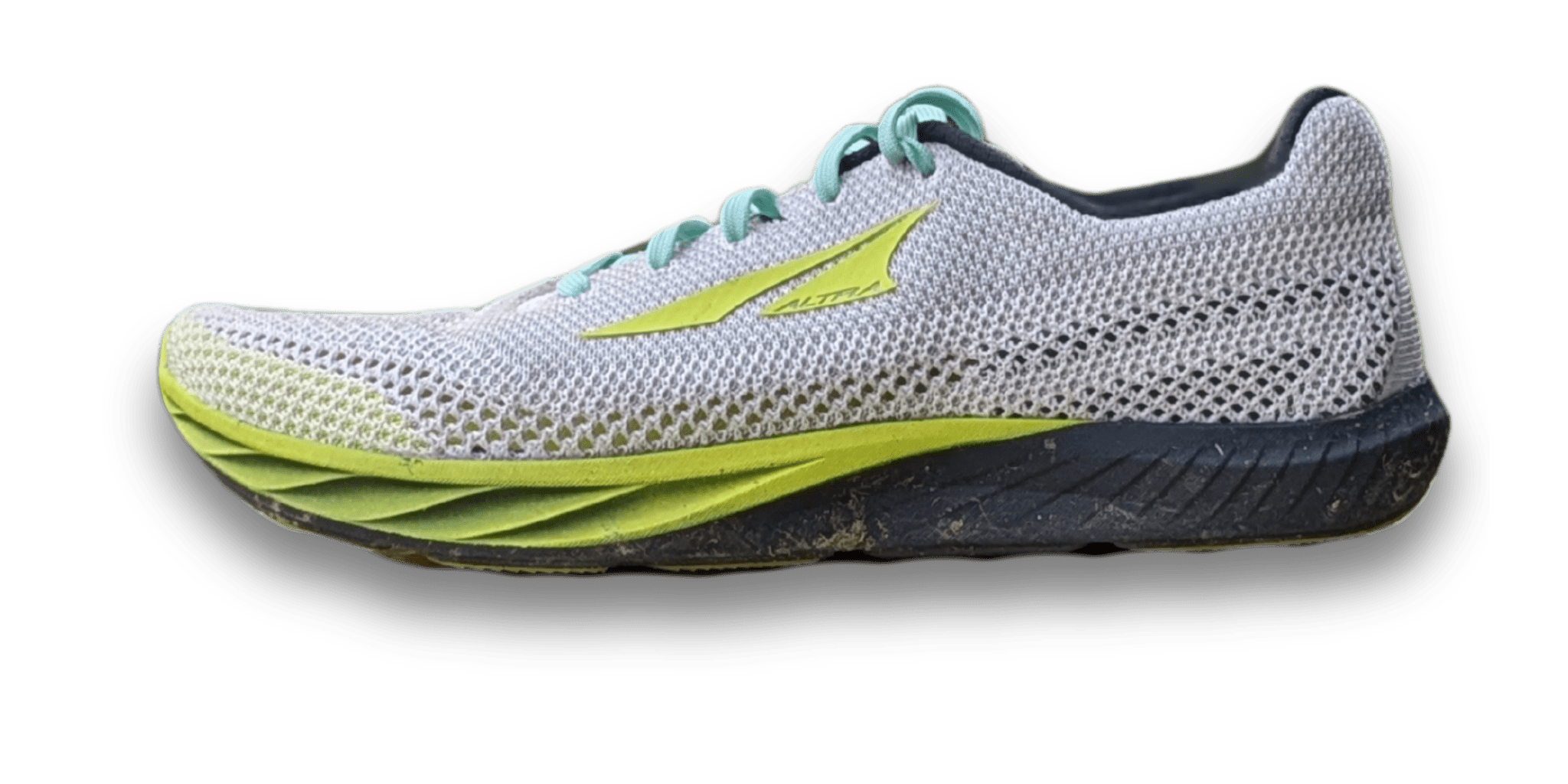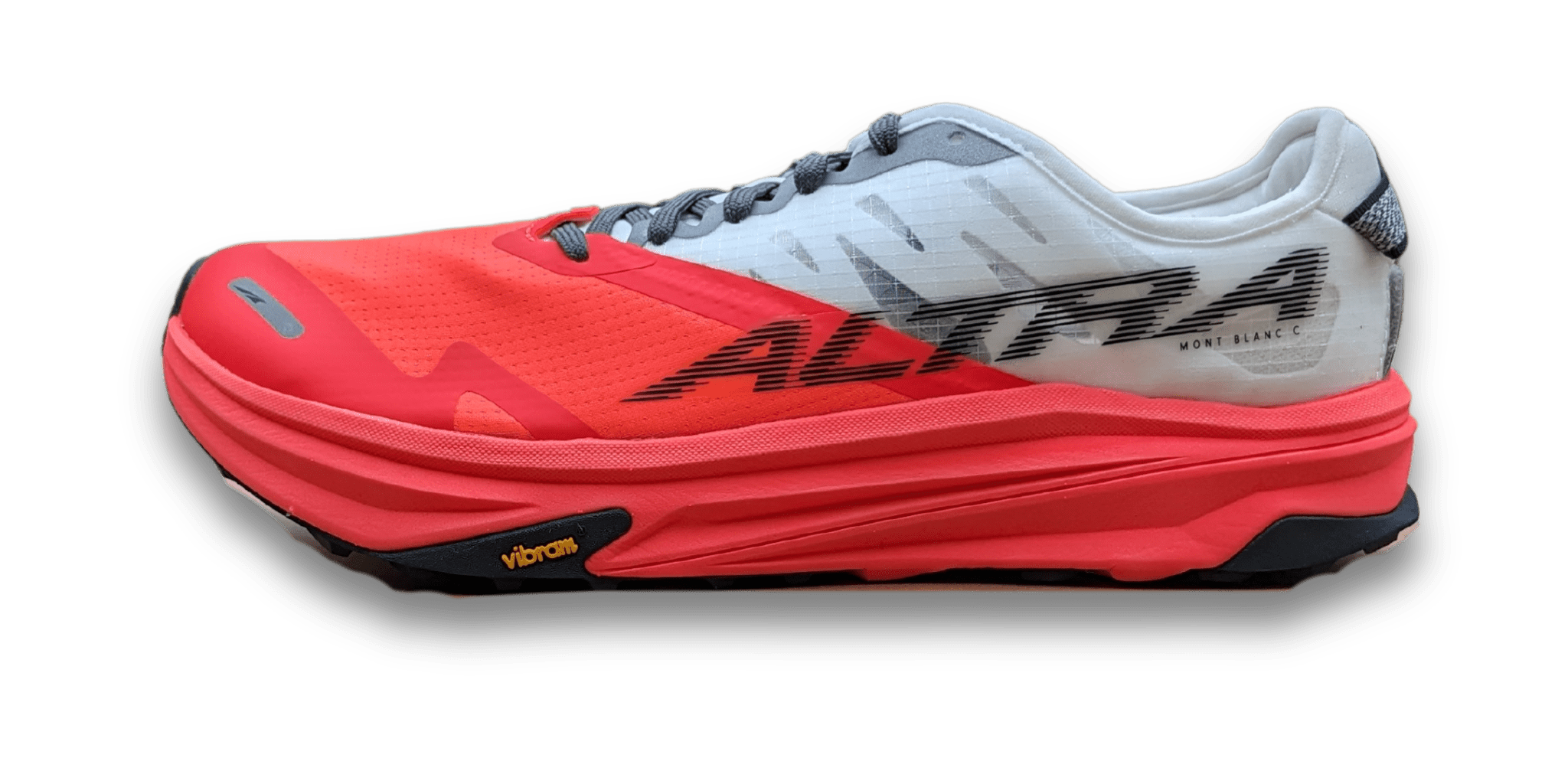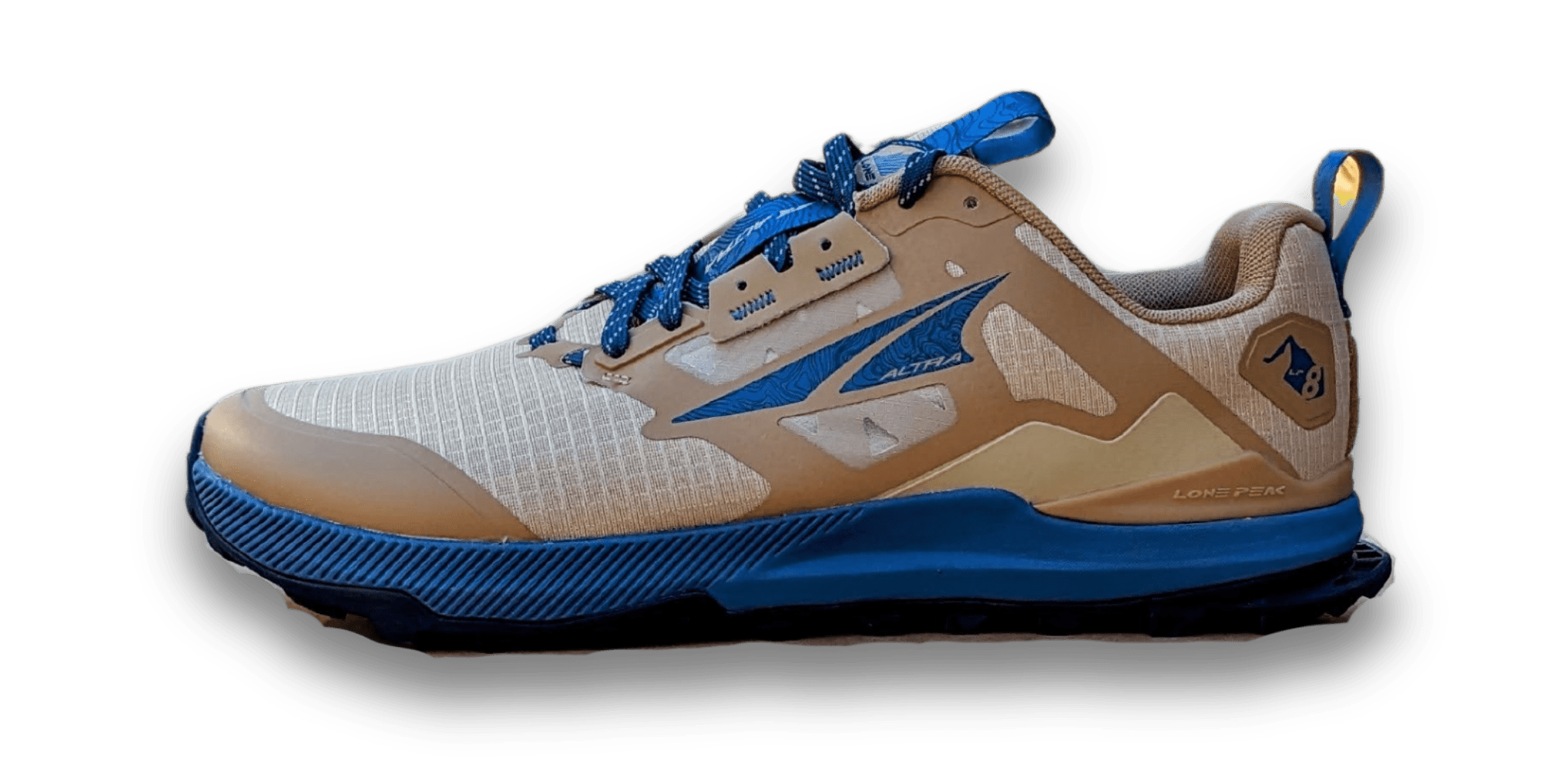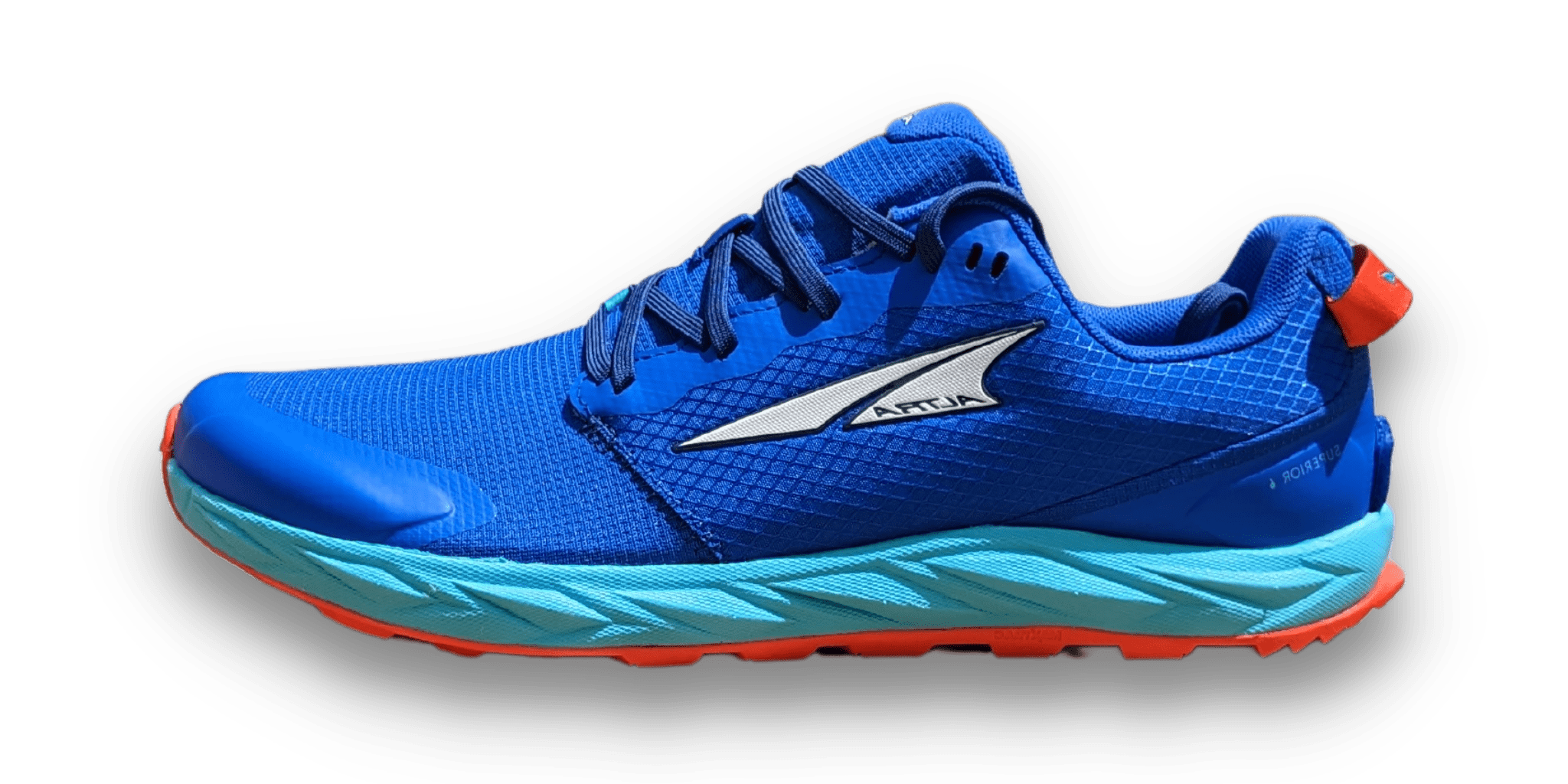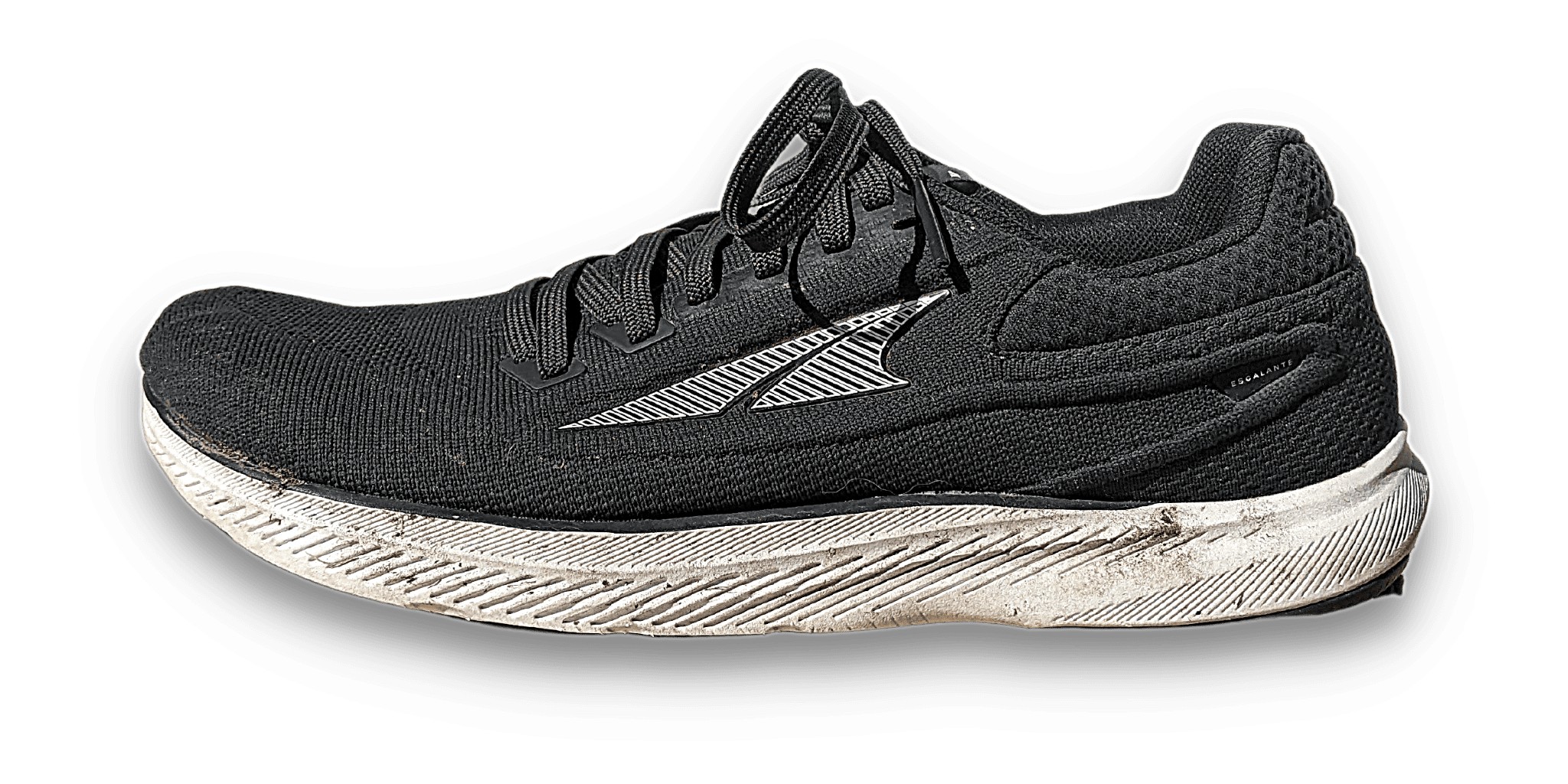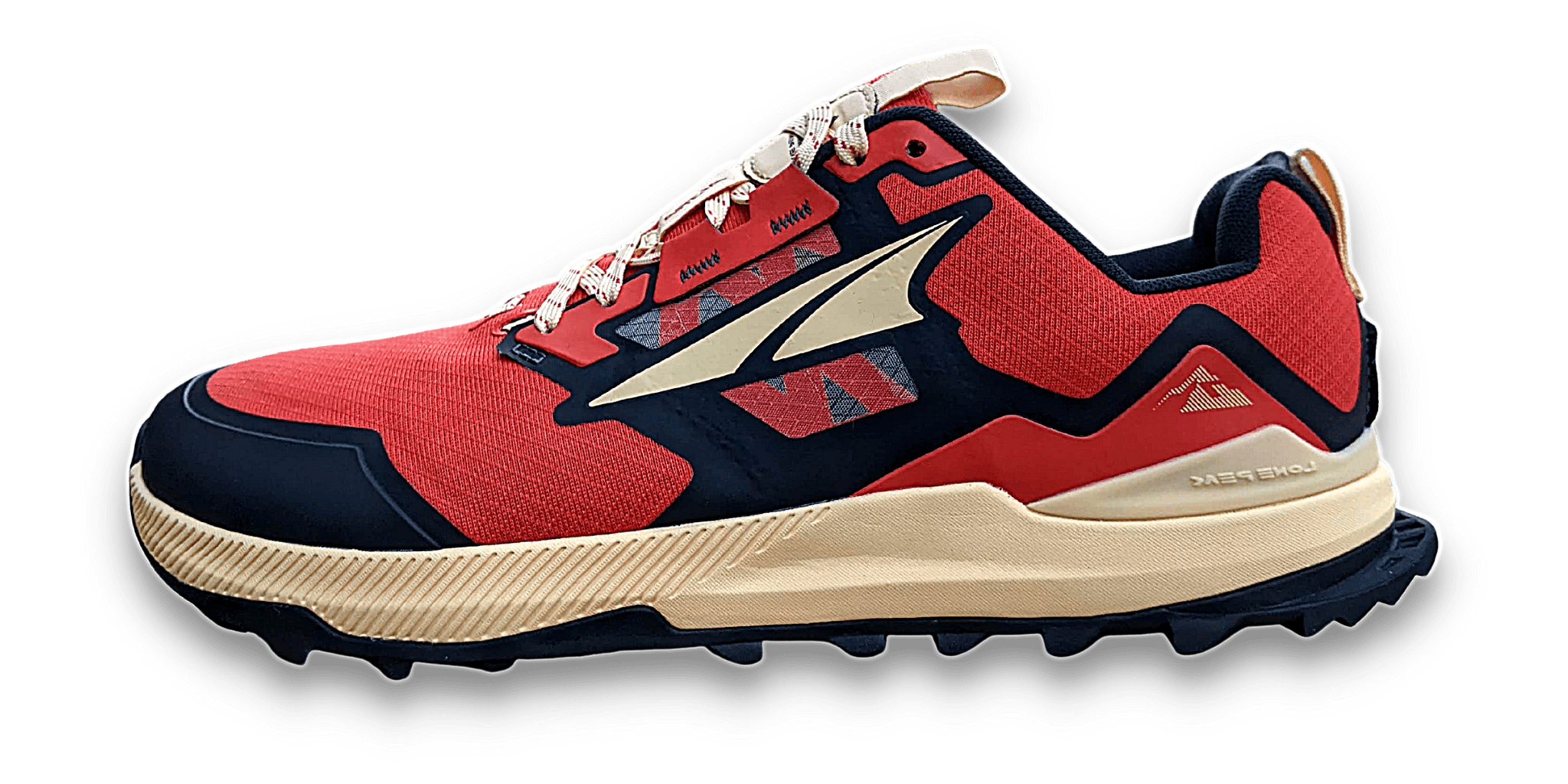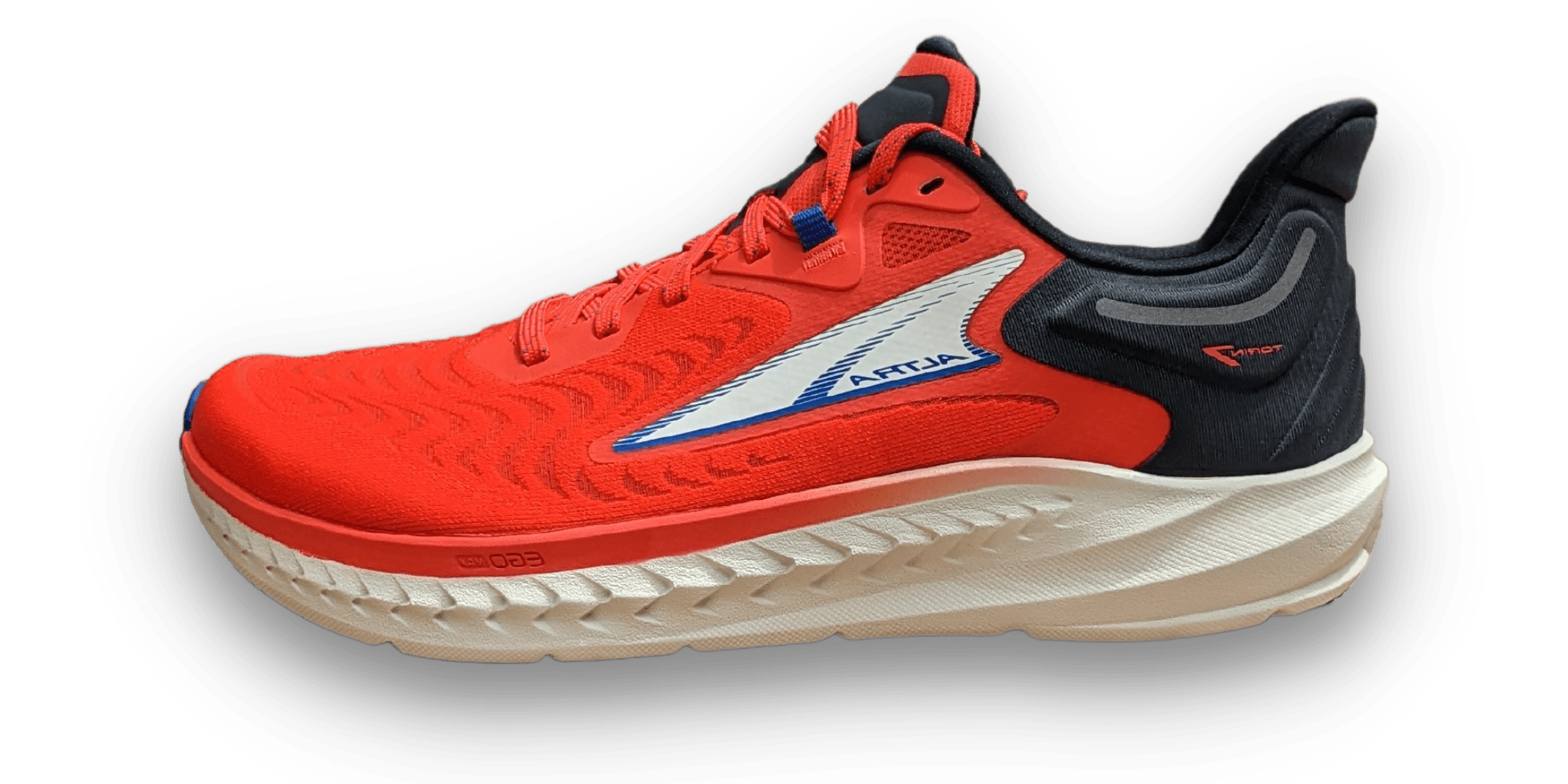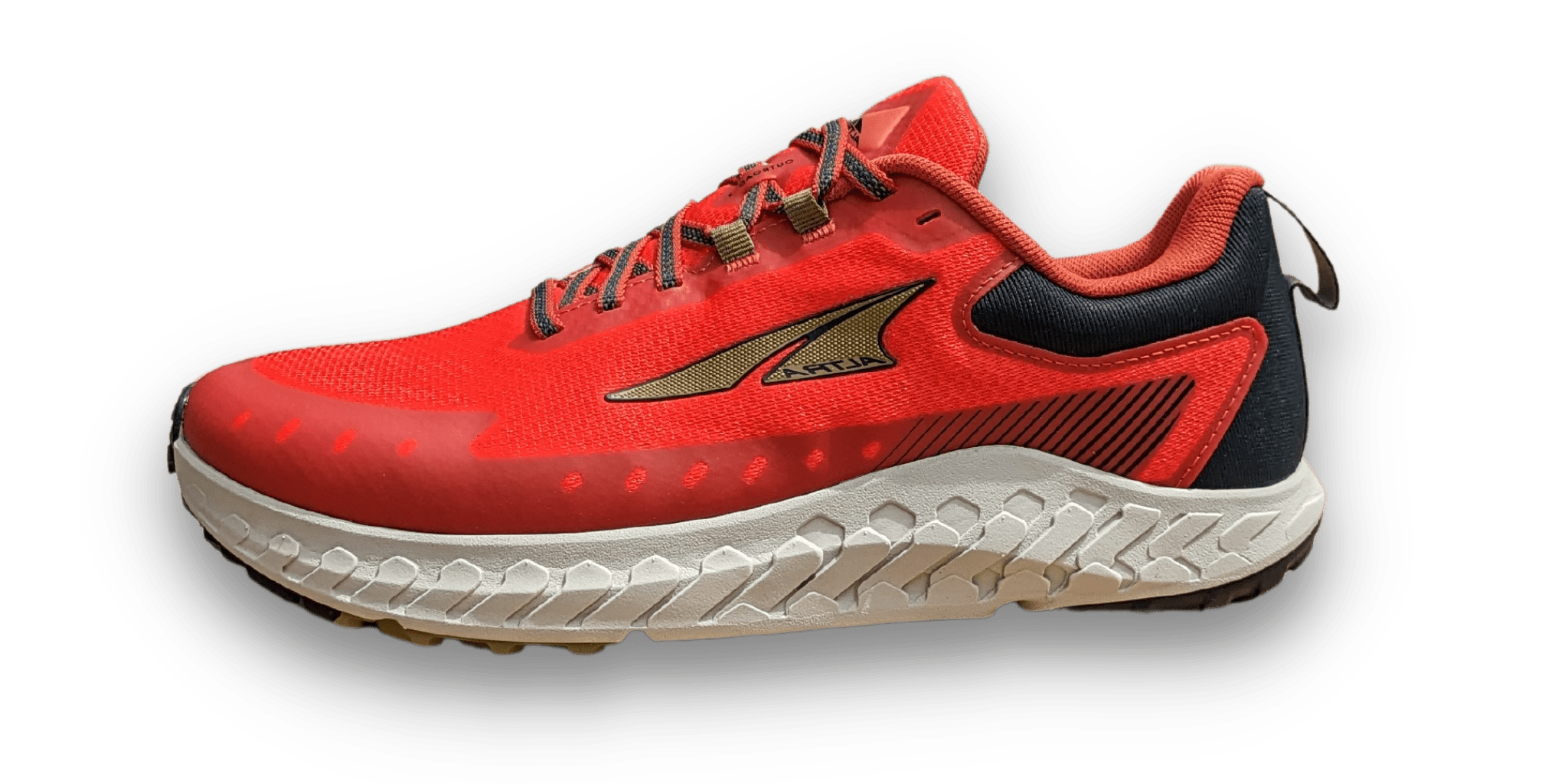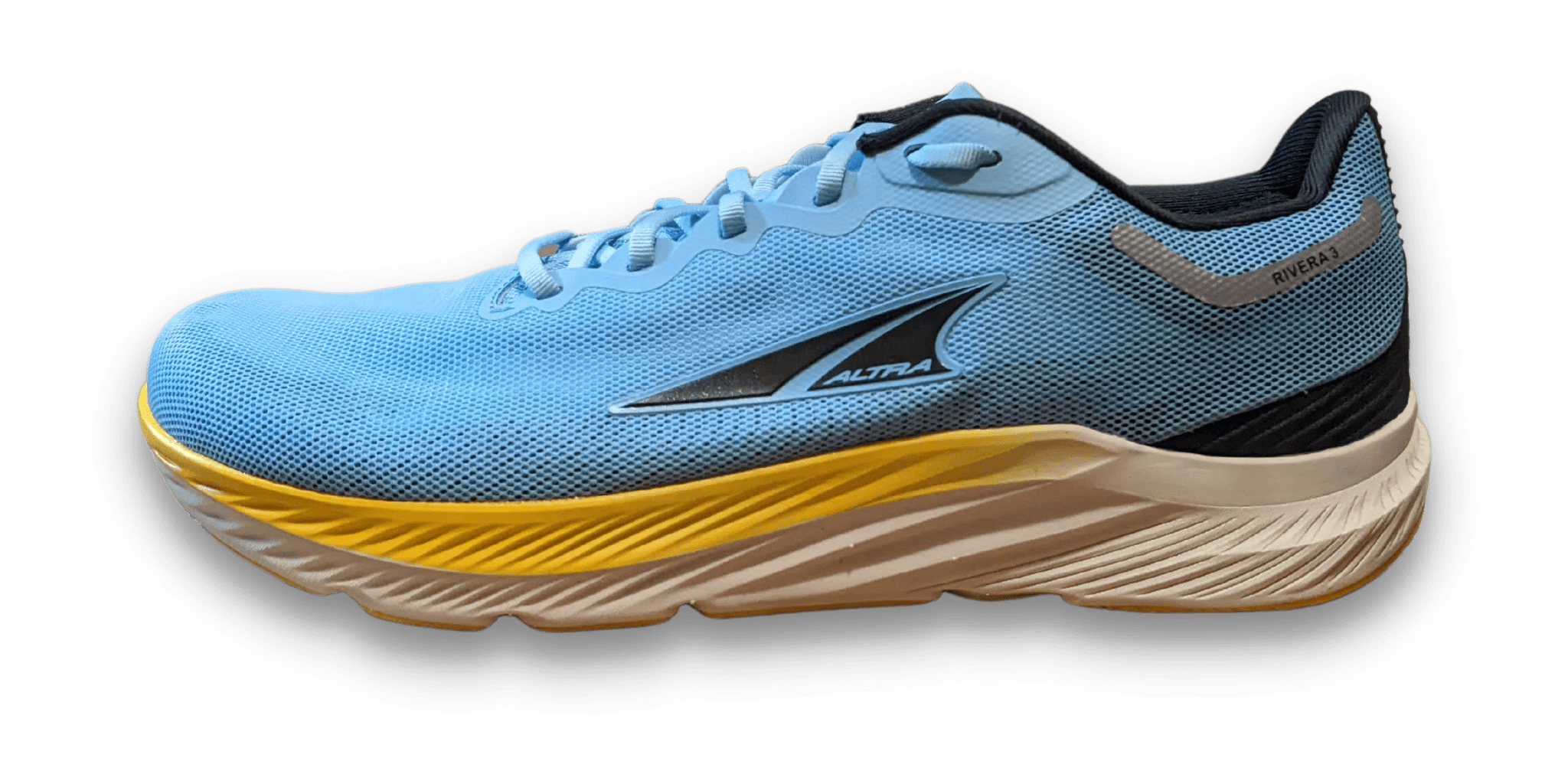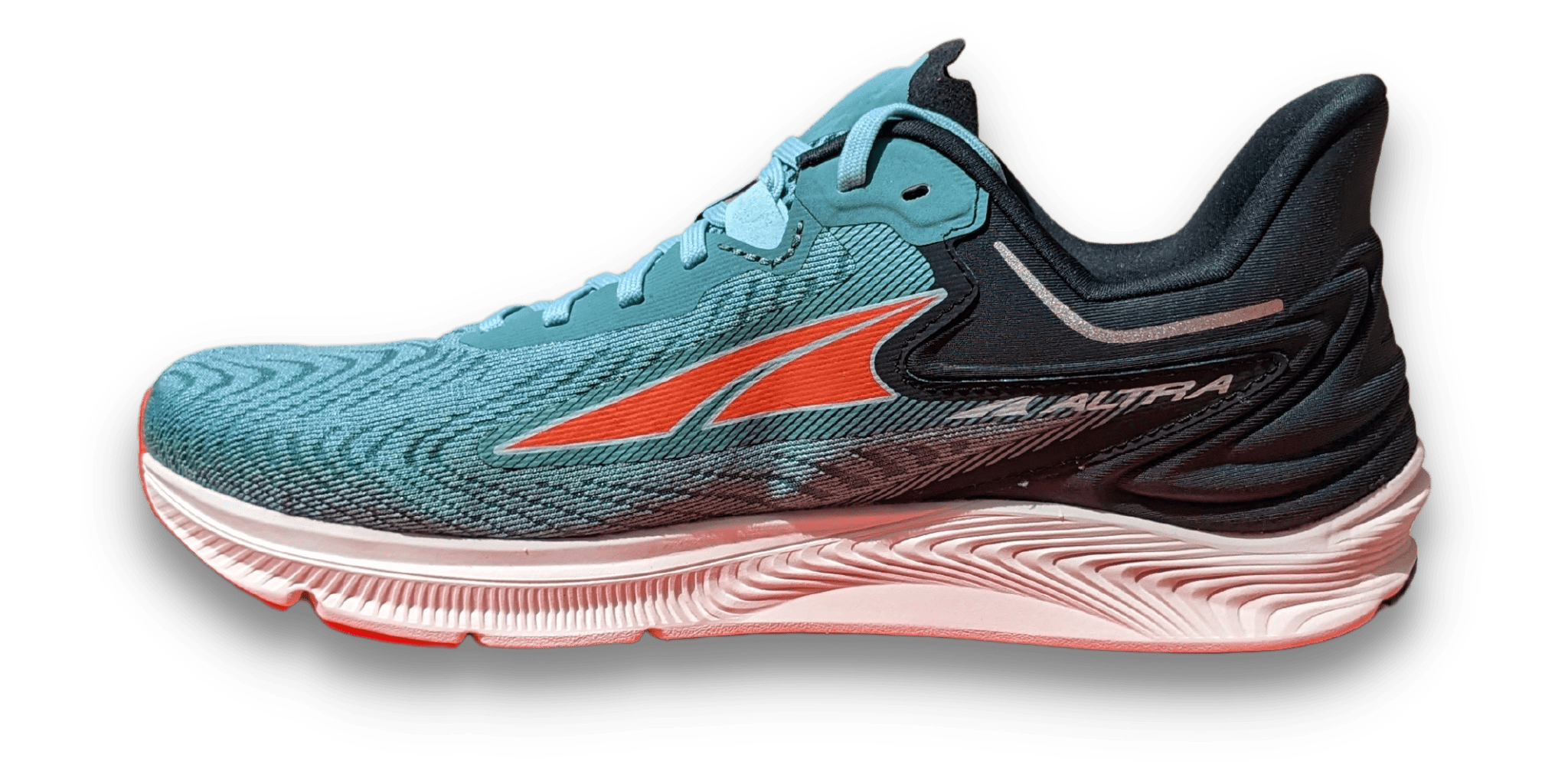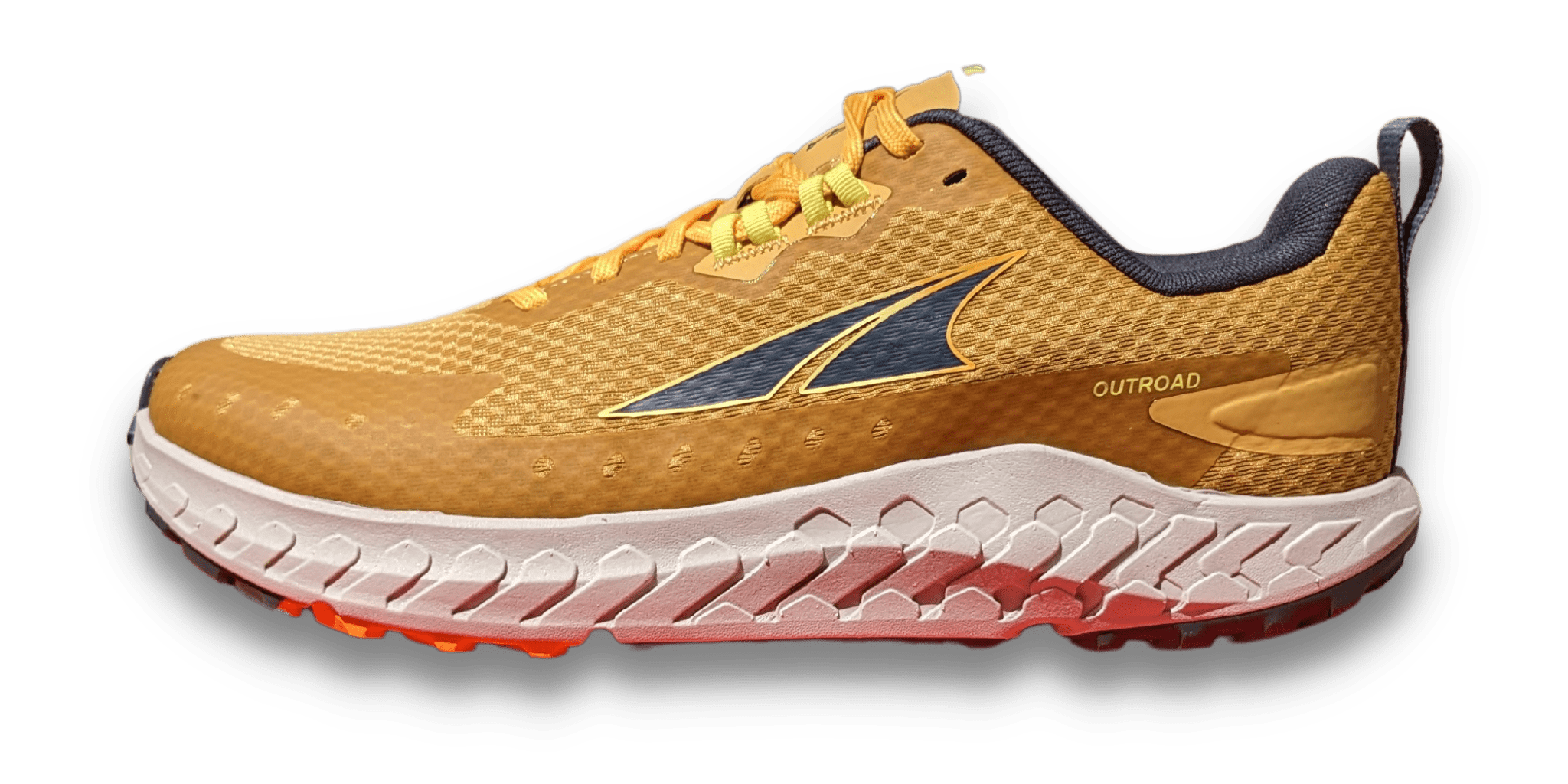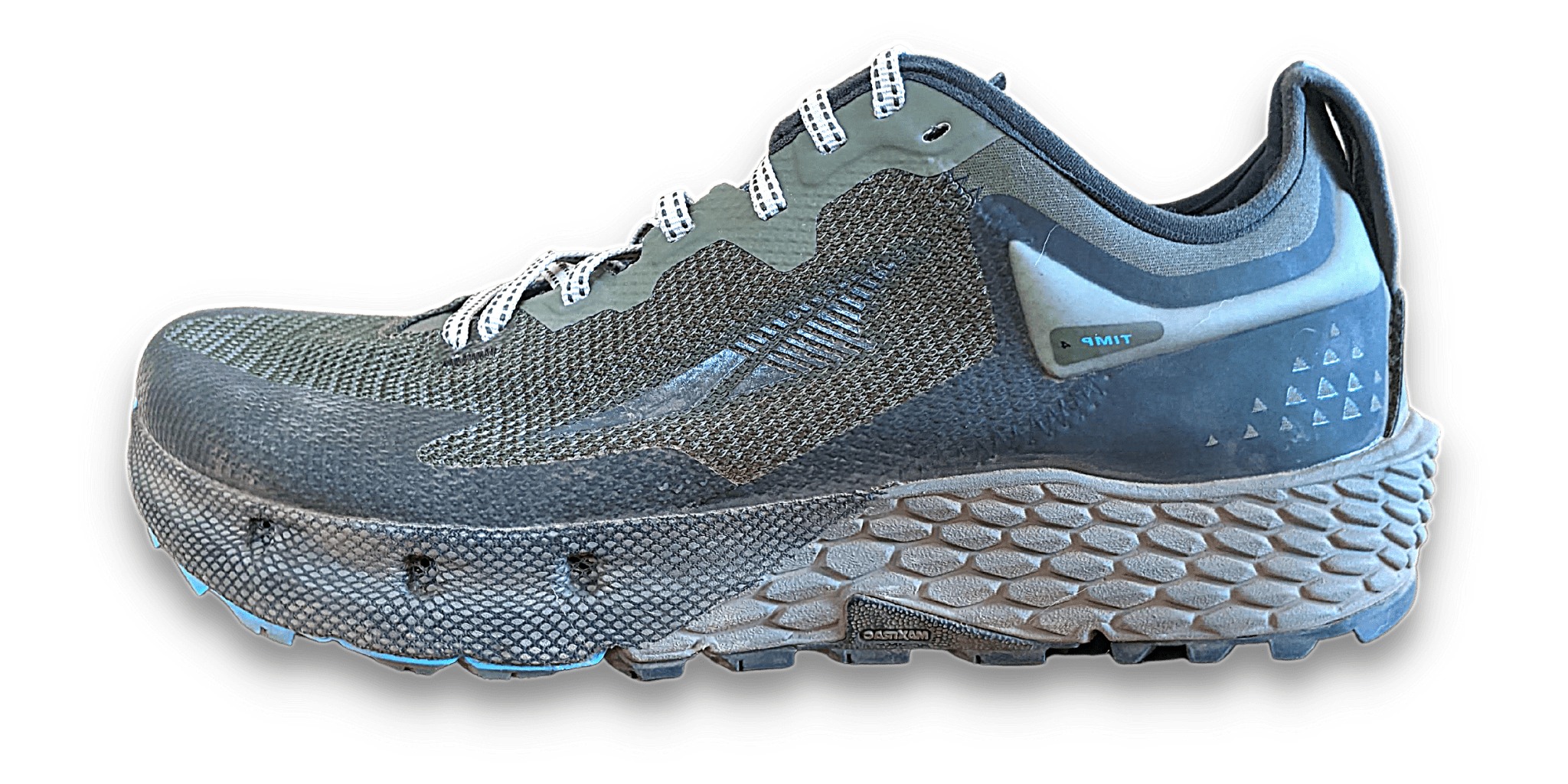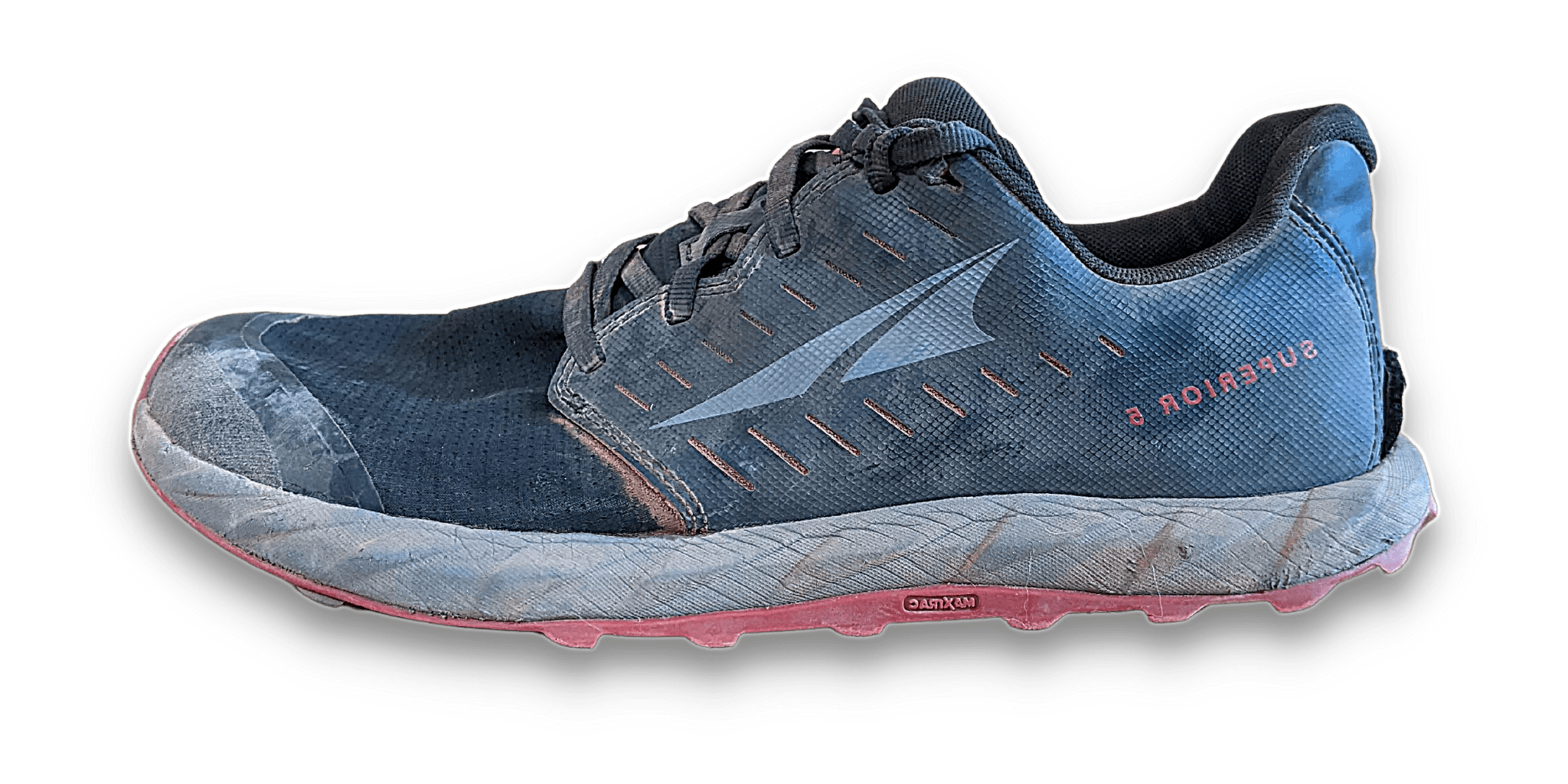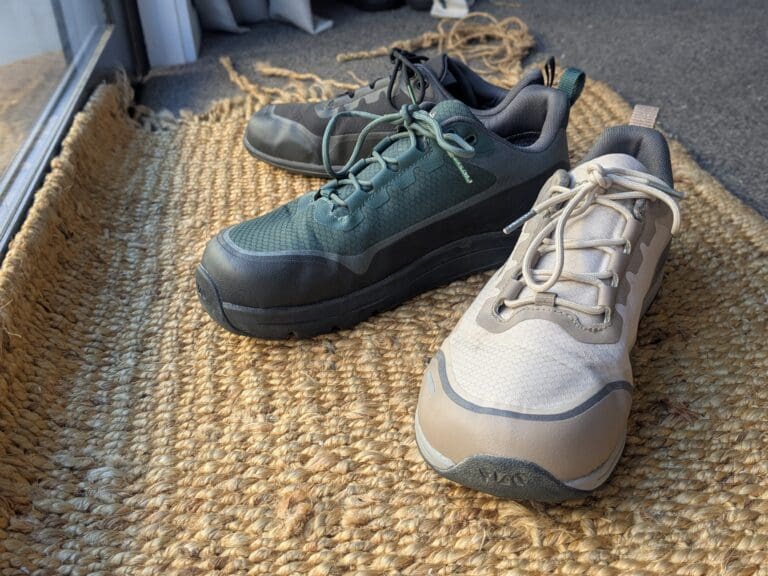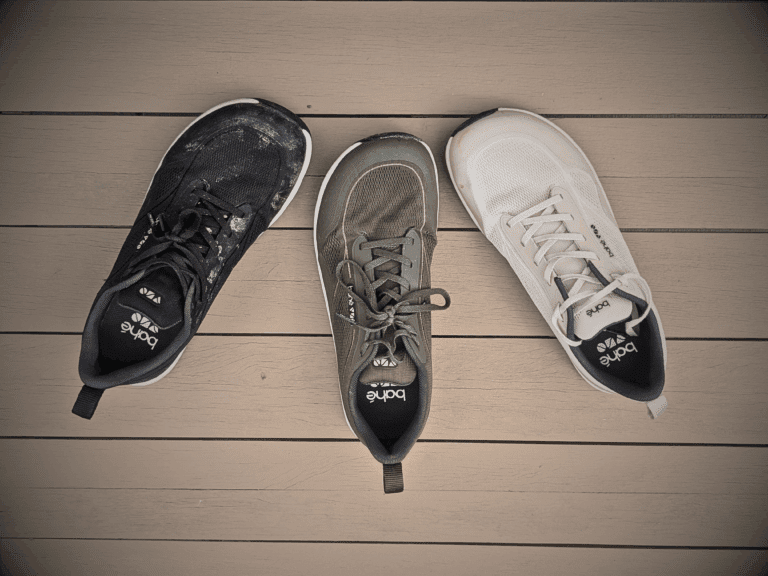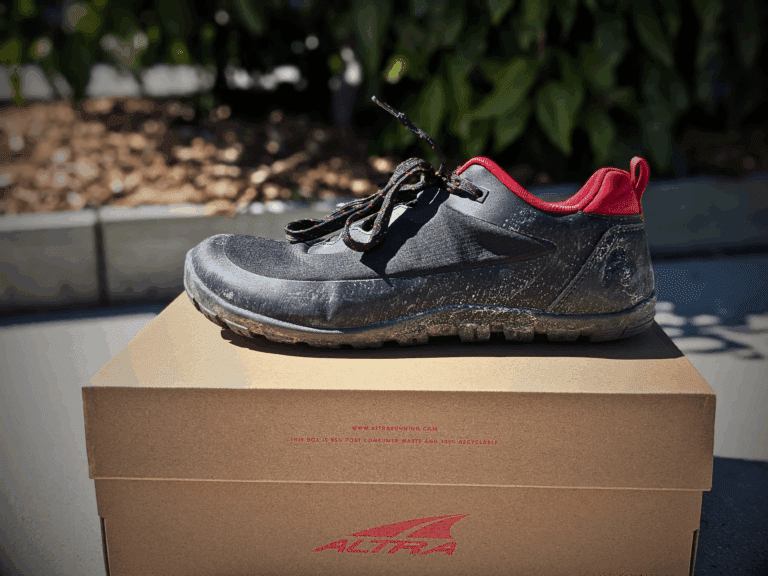Affiliate Disclosure: By clicking through the links on this page and purchasing the products, you’ll be helping me out. This is done because I receive a kickback from the sellers at no extra cost to you! Thank you so much for supporting us!
Weight
8.25 oz / 234 g for men’s US9
Stack height
24mm total stack height
Zero Drop
Made for
Long and slow runs
With a hint of foot strengthening
Fit
Average volume
Narrow/Average midfoot
Wide Toe box
True to size
Feel
Flexible
Soft cushy feeling
Lacking ground feel
Pros & Cons
+ Comfortable
+ Back to it’s heritage
– Can be unstable
With the Altra Escalante 3 being a disappointment for many zero-drop lovers, this time around, Altra is looking to claw back the reputation of the best zero-drop shoe on the market.
In short, they’ve made steps in the right direction.
Don’t get me wrong, the Altra Escalante 4 has flaws, but I can guarantee that 95% of you will enjoy this version over the Escalante 3.
Is it a throwback to the good old days of Escalante 2 and before? Not quite, but that could also be a good thing. 🙂
pssst: If you’re also curious about the Escalante Racer 2, head over to the Escalante 4 vs Escalante Racer 2 comparison post!
So let’s get into the full review of the Altra Escalante 4, starting with the fit, because that’s where the upgrades start!
One of the areas where the Escalante 3 fell short was its fit. The upper was rigid and constricting, which was a drawback for many Escalante wearers.
This was a plus when it comes to lateral secureness for gym usage, etc. That’s just not what Escalante wearers wanted.
The new flexible weave upper is forgiving in those tighter areas! Here’s the biggest win for the whole shoe. Have you ever had an issue with the depth of the Escalante 3? It’s solved in the 4 with a more flexible upper, allowing the material to mold around your foot. What about tightness in midfoot? It’s the same story. I may be pushing out the side of the Escalante 4, but the upper stretches nicely, so it does not cause discomfort.
We still have the same wide toebox! You may have heard that Altras are becoming more narrow. That may be true in some models (Rivera, the new 4mm shoes), but I can confirm the Escalante 4 is almost identical to the older models. The big toe still has plenty of room to splay, and the little toe taper is moderate. This toe box still puts some barefoot brands to shame!
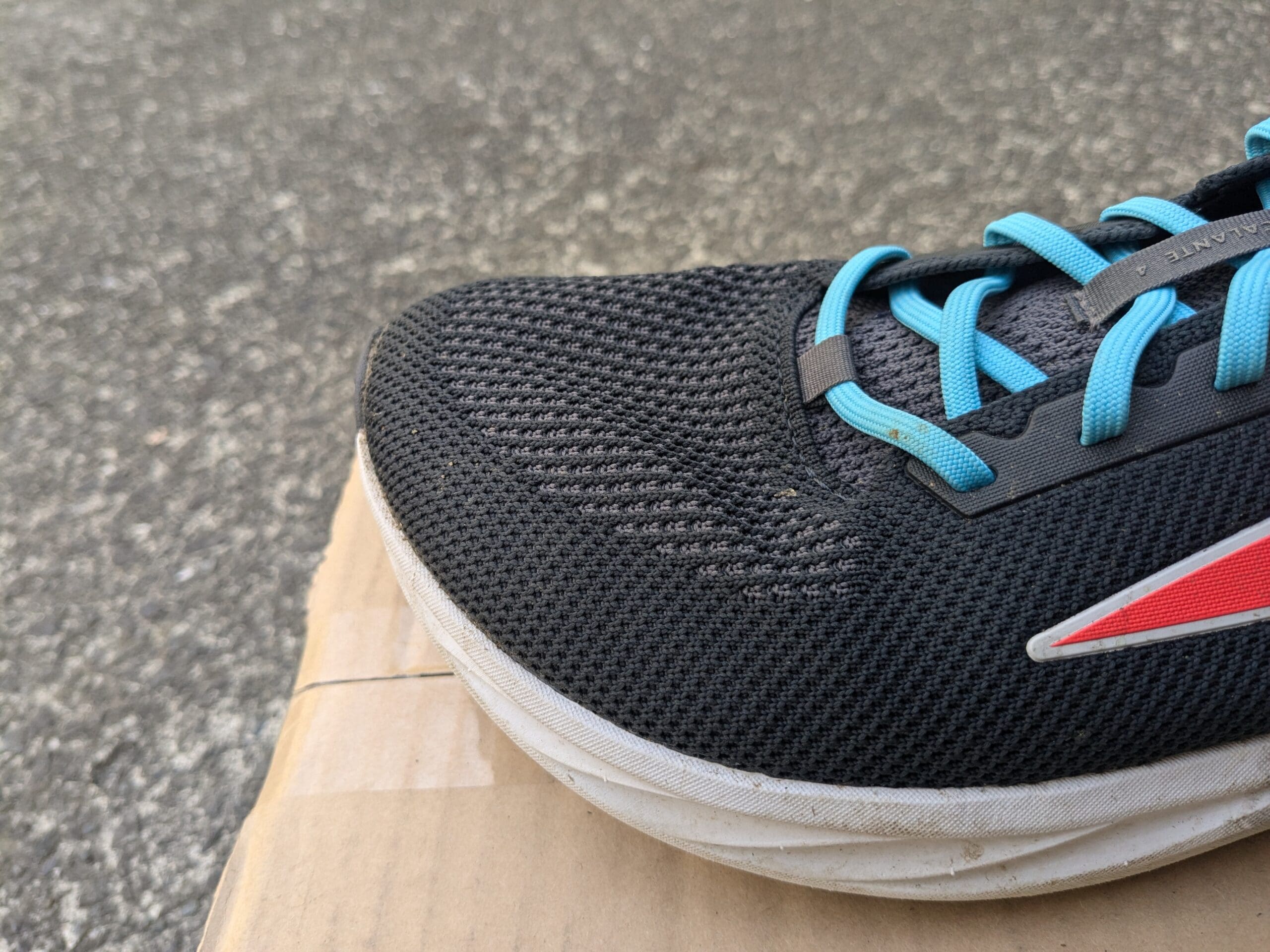
If you’re like me, the midfoot width may be lacking. A weird common theme across the Altras –which are meant to have the widest fit– is the tightness of the midfoot. If you read my Altra Lone Peak 8 review, you’ll recall me having issues with the midfoot width. Well, it’s the same with the Escalante 4! Luckily, I can get these to work with careful lacing and a flexible upper. But it’s worth noting if your width is in your midfoot and not your toe box.
Consistent sizing all around! Order true to size. Many will disagree, but I believe Altra does a decent job with sizing. It’s not often I have to size up or down. For the Escalante 4, I went for my standard US9 (~EU42.5), and the length is perfect for my ~26.5cm foot! I have just over 1cm in front of my longest toe, and like I’ve said, the toe box is great for my foot shape.
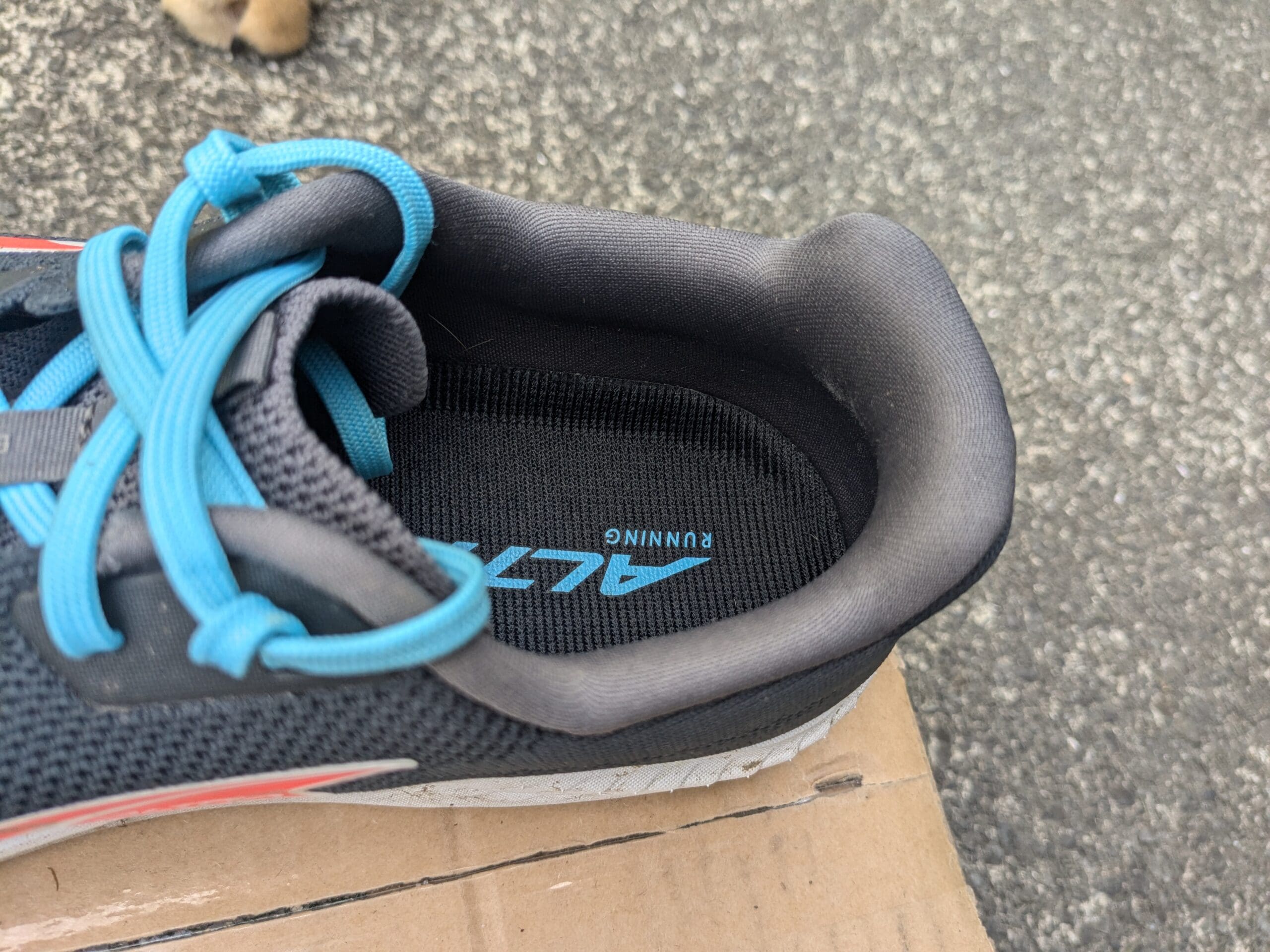
I had a little heel slippage right out of the box, but some lacing adjustments sort that. I almost always use a lace lock on my running shoes, and I needed it here. I found my heel didn’t sit perfectly in the heel cup of the Escalante, which forced me to use a heel lock to cinch down my midfoot tighter. That led to midfoot issues, but I found the sweet spot after multiple adjustments.
Minor gripe…. The laces are almost too short for a lace lock! If you have shallow feet, this won’t be an issue. But if you have deeper feet and often push out the top of the shoe, you likely won’t be able to apply a lace lock due to the lack of lace length! Now, the simple solution is to switch out the laces, and I’m all about customization, so I think that’s fine.
Feeling pressure on the top of the foot? Give it time. This is often when I tell you to switch out the insole for something thinner. BUT NOT THIS TIME! Because the upper is a flexible weave, it will stretch. Pair that with the insole and midsole, which packs out fairly quickly in many Altras, and you’ll find more depth the more you run in them. After ~70km, mine are feeling super comfortable with no modifications.
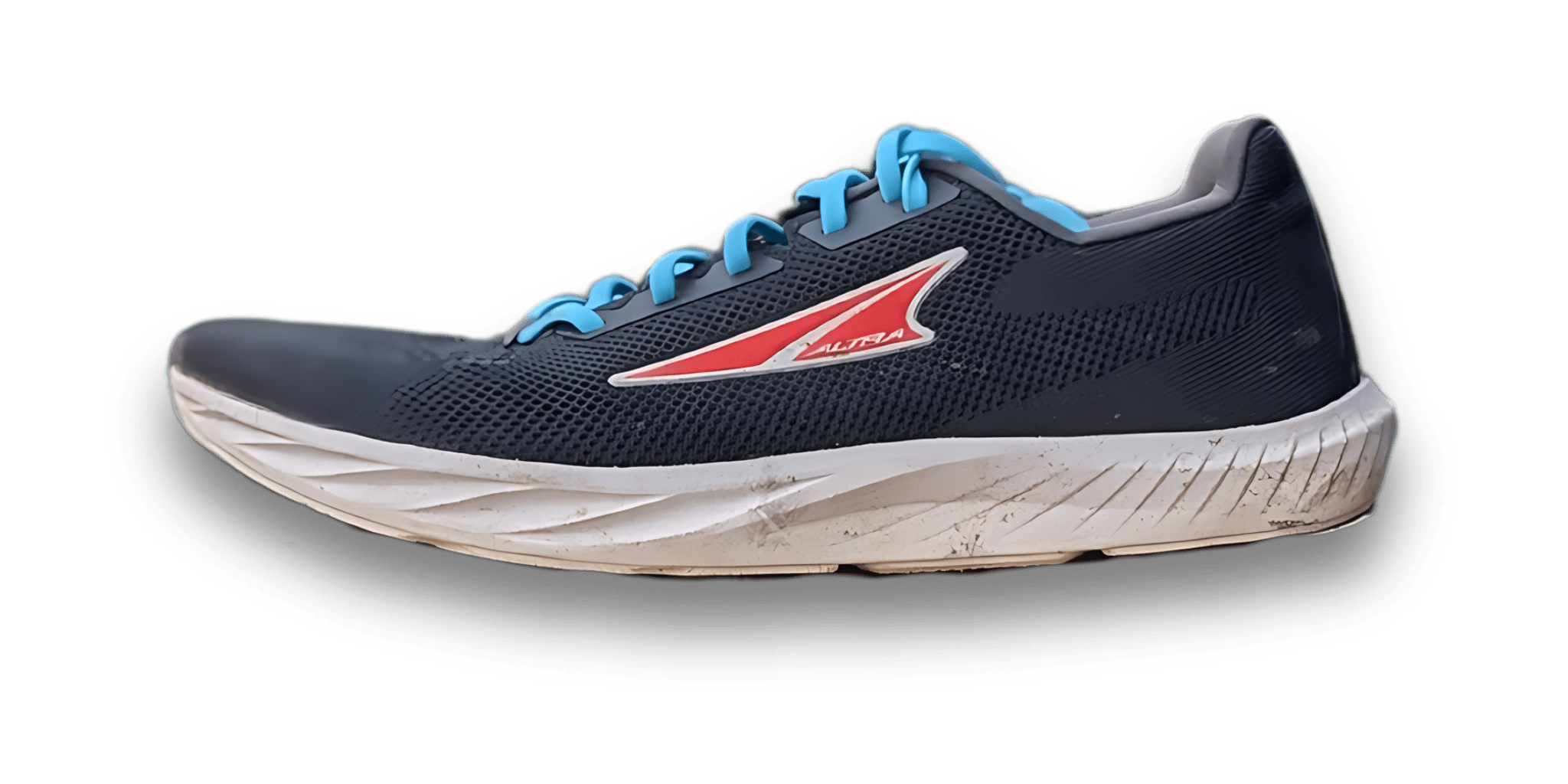
Altra Escalante 4
Ok, here we have another win if you’re looking for a throwback to the soft Escalante days.
The Escalante 4 has regained some flexibility and offers a more squishy ride!
The flexibility removes any hint of rocker that Escalante 3 had. Considering I’m a proponent of foot function, I’m all about this! There’s no feeling of the shoes “pushing” you along. Instead, you must rely on your foot strength and lower leg power to offer propulsion. Just be wary if you’ve never run in a flexible, zero-drop shoe before; this puts much more stress on your feet and lower legs.
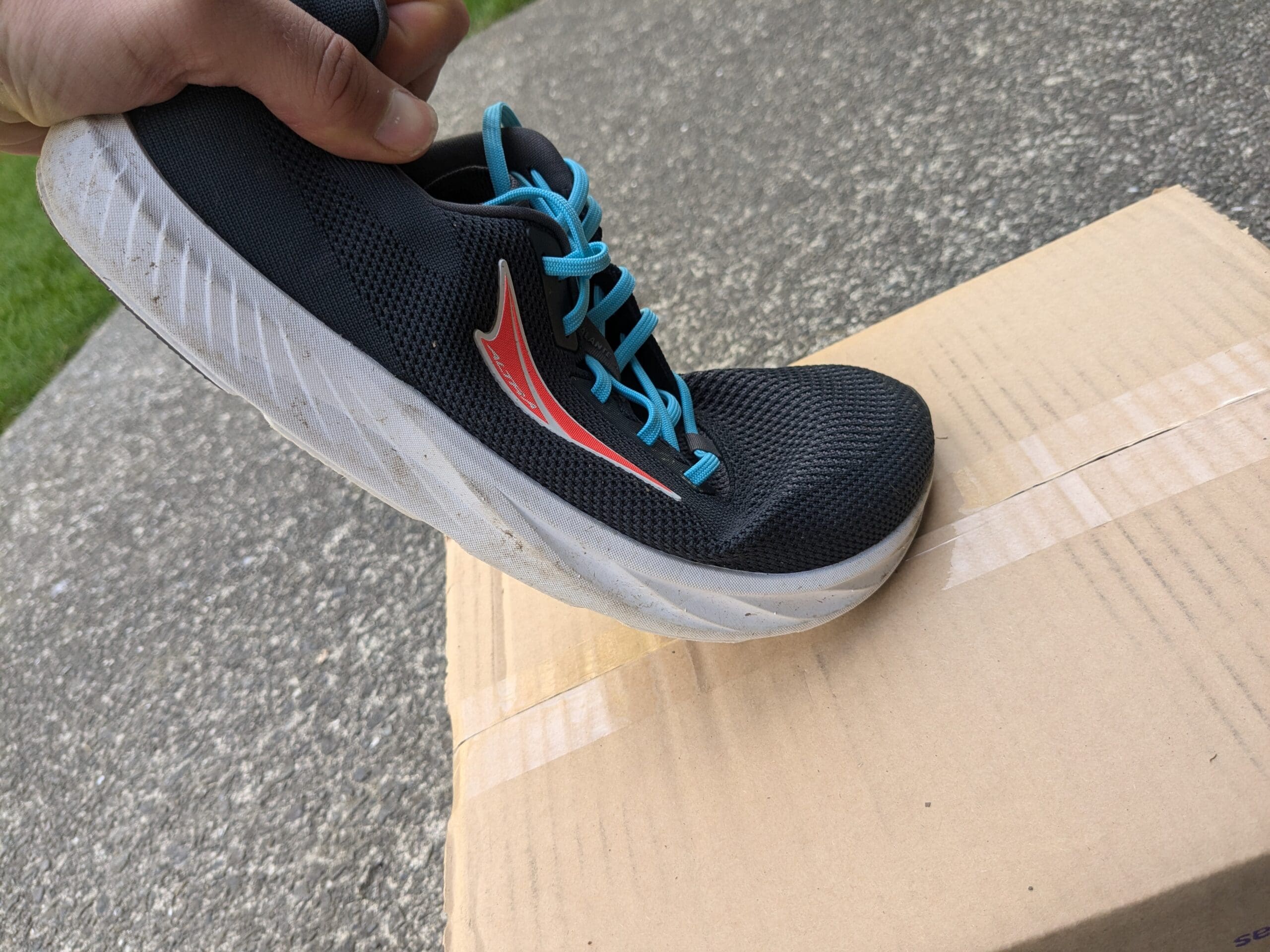
The forgiving upper allows your feet to activate optimally. With less restriction, you’ll find your toes naturally splaying in the wider toebox and your foot musculature engaging to enhance balance and return built-up energy.
The 24mm stack may not be considered ‘high stack’, but the squishiness makes it feel higher. I’ve run in many low and high-stack options. From 4mm up to 35mm. And even though 24mm isn’t the highest in that range, the softness of the Escalante 4 makes it feel higher than it is. I’m not saying this is good or bad, but if you’re expecting a “close to the ground” or responsive feel, you’re not going to get it here.
Talking about squishiness, these aren’t made for the gym. You tend to fall off the sides whenever you exert a lot of lateral force into these shoes. 1) because of the softness of the midsole, 2) because of the flexibility of the upper. That means you don’t want to use these for sports and activities that involve a lot of side-to-side motion. I even felt wobbliness when walking around after my workout! Maybe I’m hypersensitive because I’m used to being planted near the ground. Personally, I wouldn’t be using the Escalante 4 for anything other than running.
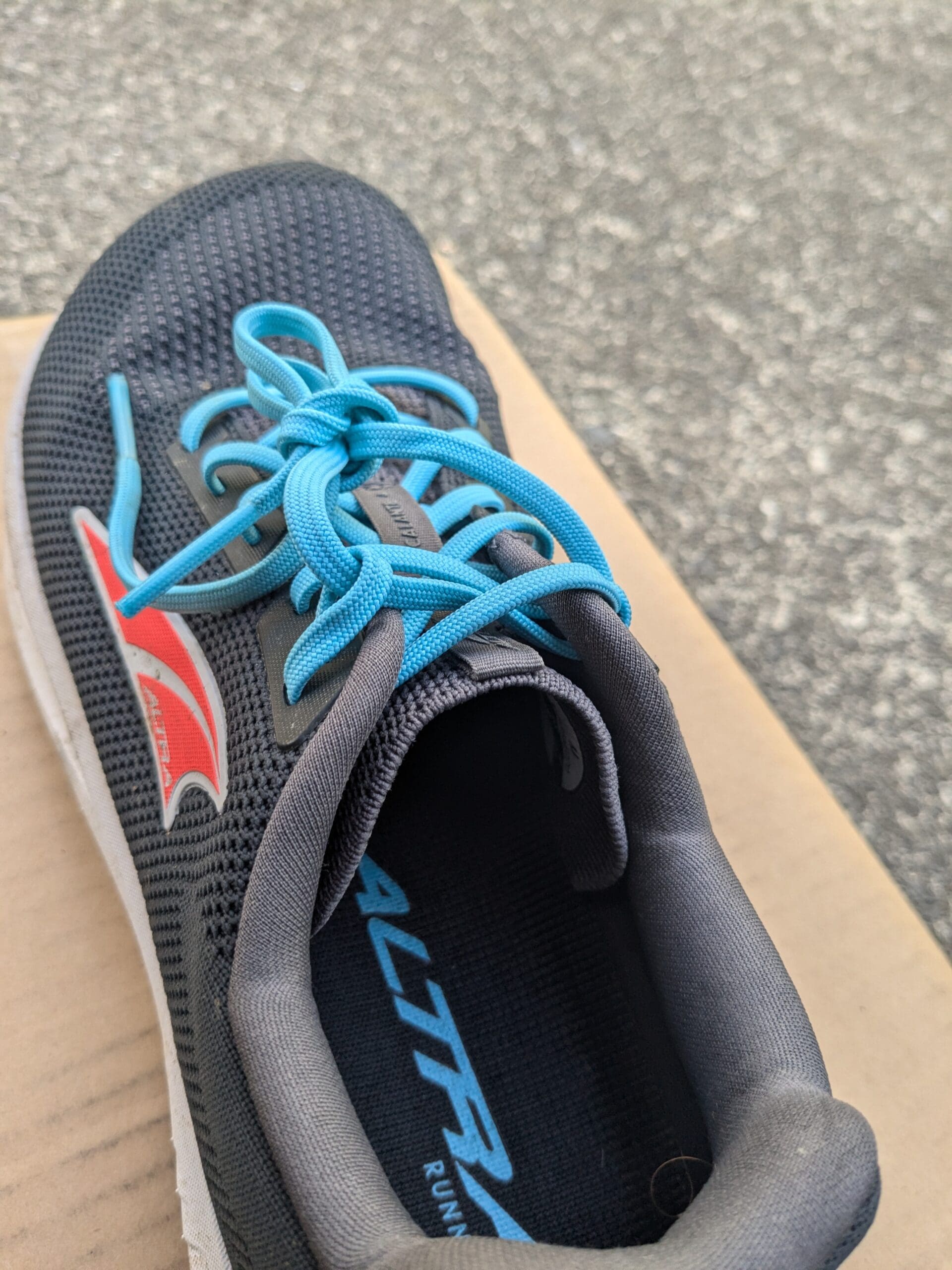
The smooth, soft ride puts the Escalante 4 perfectly in the longer, slower distance category. I didn’t enjoy the feeling when I picked up the pace. Again, I felt uneasy on the soft platform. But they were a breath of fresh air for my long, slow runs. A great option when I didn’t want the stress of another barefoot run. For non-barefoot runners, this likely means it could work as a short to mid-distance shoe, but I wouldn’t pick up the pace in these. Instead, look at the Escalante Racer for that!
Even though this model has lost a bit of outsole rubber, I didn’t slip around in the wet. It may seem like a downgrade from a shoe with a full rubber outsole like the Escalante 3. This is normally done to save weight. Considering we rarely see high wear patterns under the midfoot, adding rubber to those areas can be wasteful. The compromise is usually grip, but considering the forefoot and heel still had good rubber coverage, I found no issues slipping around, even when it was raining.
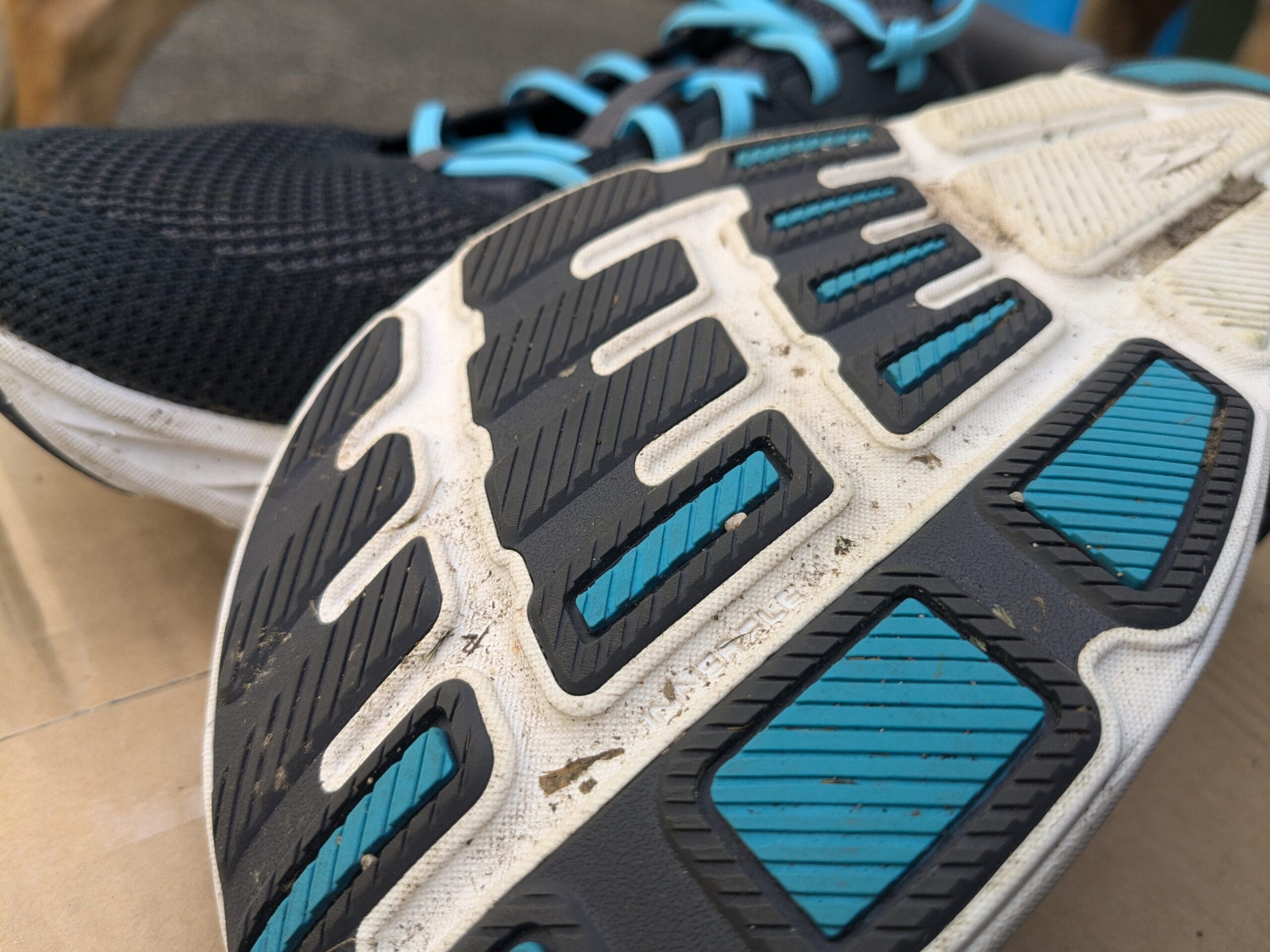
Back to the thin tongue! I don’t have a strong preference for the older, thin Escalante tongue or the thicker tongue we saw on the Escalante 3. But in this model, we’re back to the thin tongue! I didn’t find it slipped around when running, but for some things, it took a little readjusting when lacing up the shoes.

Altra Escalante 4
I’ve only run 70km in these shoes, and while I see no breakdown yet, it’s hard to make a strong conclusion about its durability. But I’m more concerned about some areas of the shoes than others.
Although I have seen from multiple sources that believe they can take these 1000’s km.
My gut feeling is that we’ll easily see 500km out of these shoes, but I’m hesitant to suggest huge mileage due to Altra’s past and the similar construction we see here.
That flexible upper could be a concern for longevity. Sadly, Altra hasn’t had a good track record with upper materials in the past few years. Trail options like the Timp, Olympus, and Lone Peaks have all had issues with splitting around the forefoot, and Torin’s have seen the same fate for the road lineup. This is one area where the Escalante 3 held up well. It’s likely due to the more rigid upper and base. Now we’ve moved back to more flexibility; I see a higher possibility of users pushing out the sides of the uppers again. But it’s a compromise we must all make if we want flexible, more comfortable shoes.
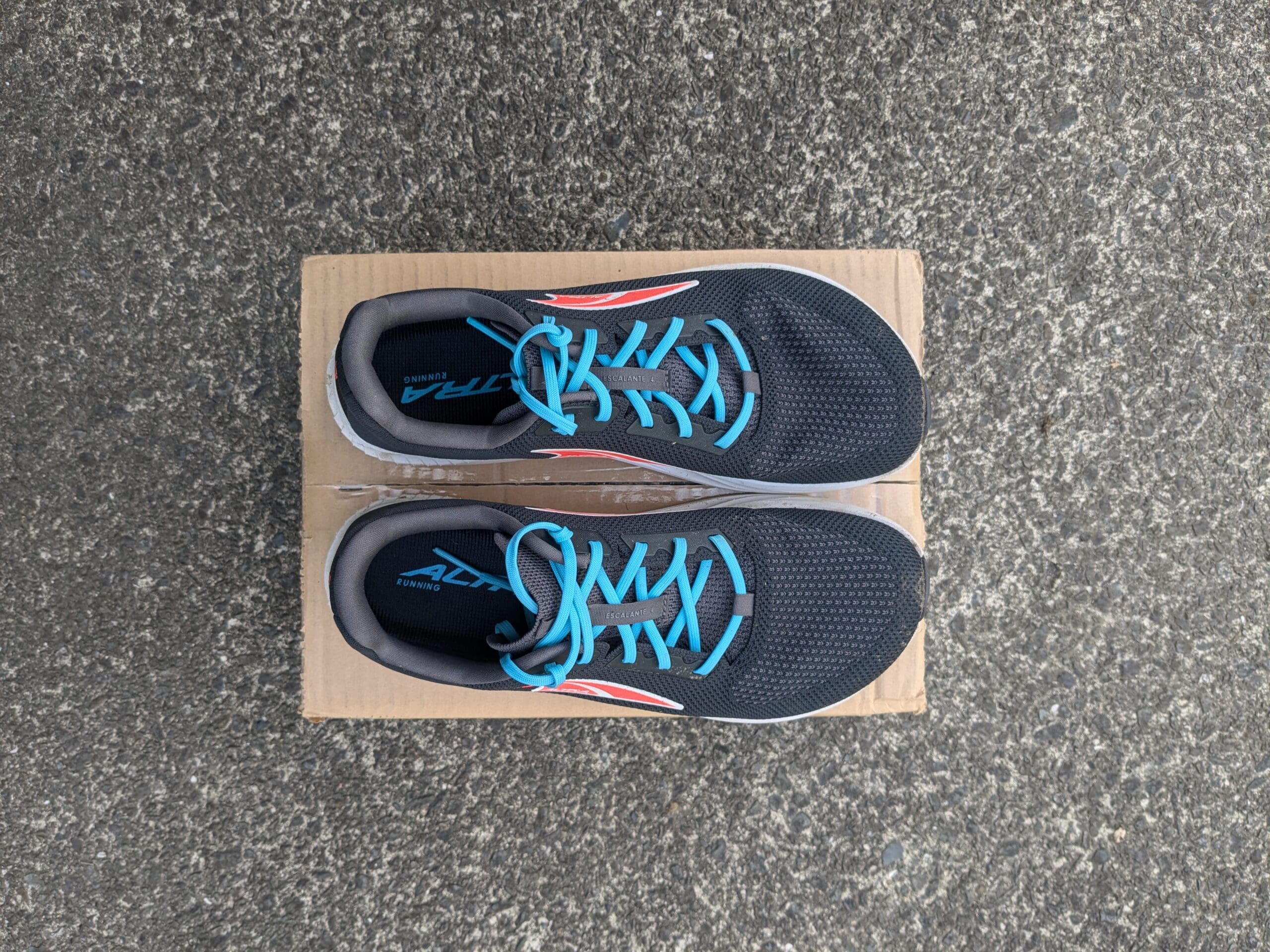
If you’re a toe lifter, be wary of the upper. Even though it “feels” like there’s more depth in the toe box, most of that feeling comes from the material’s flexibility. Because the material is softer and lays low against the toes, anyone who has worn through the top of a toe box in the past should take note and potentially switch out the insole for something thinner to gain a little more depth in the toe box.
The plush inner liner will prevent any rubbering and holes from occurring. And even though I did find a little heel slippage at first, the smoother liner means this friction will not end with a hole in the short term. If you’ve ever worn holes in the heels, this could be a plus point!
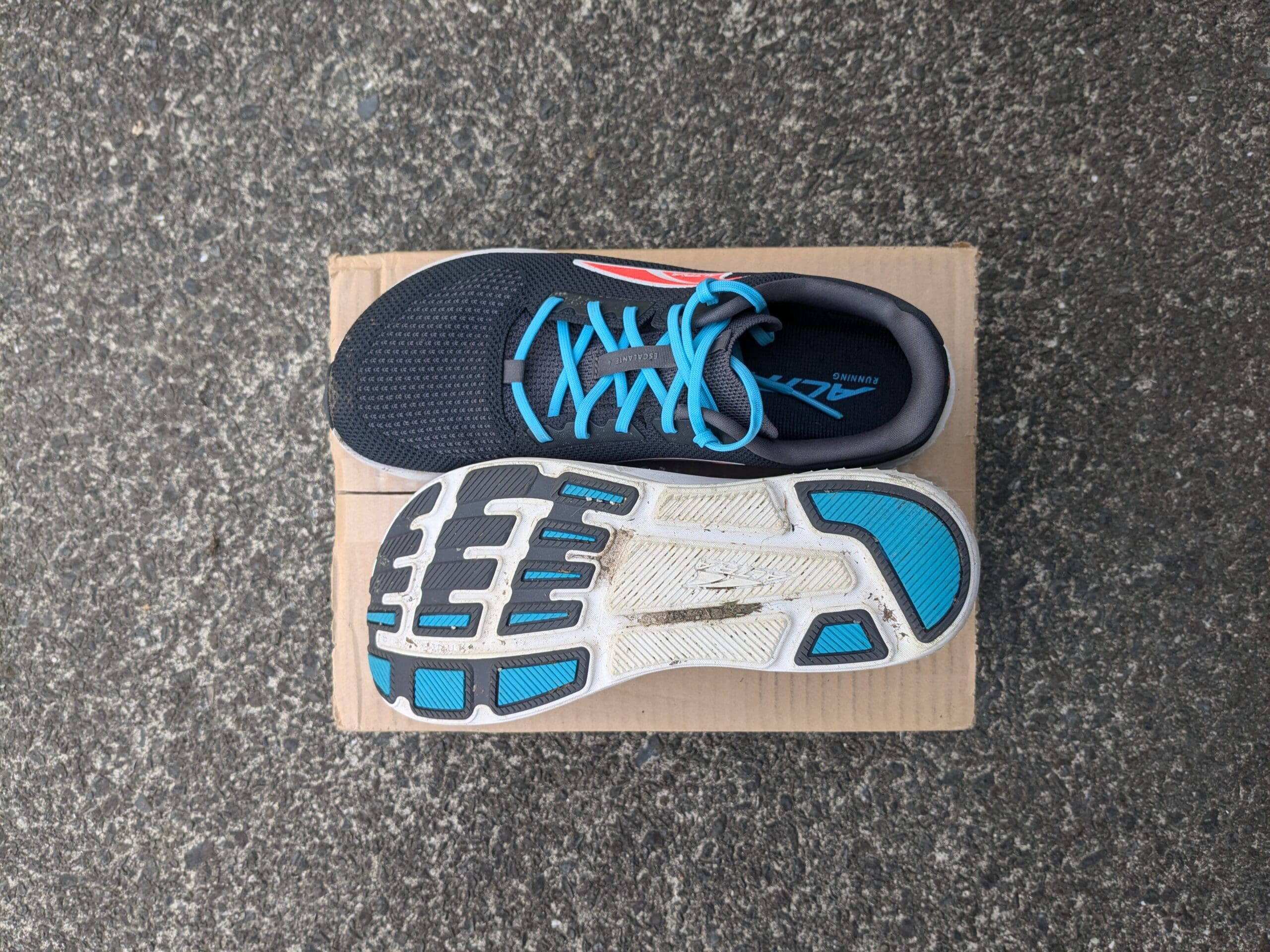
The lace eyelets are solid and well-reinforced! Sometimes, we see designs with a thin, flimsy nylon loop holding the laces in place. This often breaks down prematurely when you add damp weather or leave the shoes in direct sunlight. Because the eyelets on the Escalante loop through the upper of the shoe AND are reinforced with plastic, I’m certain you won’t see a lace snapping through. It’s a great design.
The exposed midsole foam will get chewed up depending on the surfaces you run on. I’ve known people who rock their Escalante on the dry trails. And while it’s completely possible, it may not be advisable. Considering that the outsole only covers part of the shoe now, any gashes that could occur from rocks would slice right through the foam, leading to a decreased life span. Simple solution…. Use the Escalante’s on the road, and grab the Superiors for the trail.

Altra Escalante 4
The Altra Escalante 4 delivers a noticeable shift in comfort and fit compared to its predecessor. The Escalante 3 features a snug upper and wide toe box, allowing for good toe splay, but the upper can feel rigid on longer runs—something I noticed after back-to-back efforts.
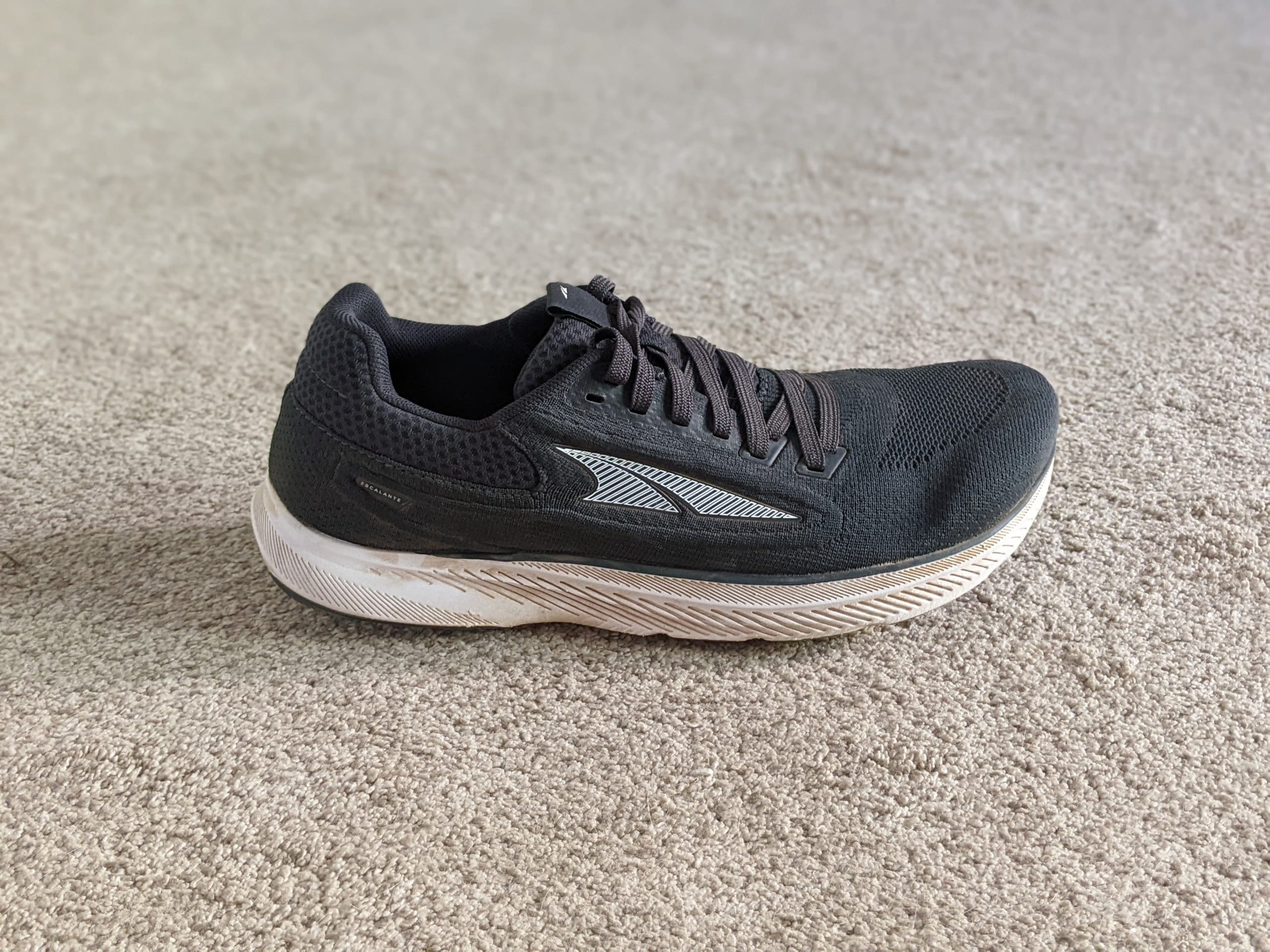
A softer, more flexible upper is a less constrictive experience. This upgrade makes the shoe more accommodating to different foot shapes and noticeably more comfortable out of the box, especially if you struggled with tight spots in the Escalante 3.
Both shoes maintain the same zero-drop, 24mm stack height, but the Escalante 4 feels a touch softer underfoot. That extra softness creates a comfortable feel in the day-to-day, while the Escalante 3 provides a firmer, closer-to-the-ground feel that some runners still prefer.
Another key difference is the ride: the Escalante 4 is more forgiving, while the 3 feels more responsive and solid. If you like ground feel for tempo days, the Escalante 3 has the edge. For easy miles and all-day comfort, the Escalante 4 will likely win you over.
Upon re-reading my review, I feel I’ve been far too negative.
I actually think the Esclante 4 is an amazing update. It’ll certainly win over some of the old crowd, and I can say for certain that a new crowd will be wowed by its comfort.
As a personal choice, I’ll likely be sticking with the lower-stacked, firmer Escalante Racer for that ground-connected feeling.
But if you’re looking for a daily road trainer for your mid-to-long mile days. The Escalante is a certain contender whether you’re dipping your toe into zero-drop for the first time or looking for a cushioned option to pair with your minimal shoes.
Easy decision.
Escalante 3 is no more! Long live the Esclante 4… or racer…. 🙂

Altra Escalante 4
